Welcome to our Current Student and Alumni Page
The Global Health MA Program accepted the first cohort of students in Fall 2020. View our current cohort of students and our alumni.
The Global Health MA Program accepted the first cohort of students in Fall 2020. View our current cohort of students and our alumni.
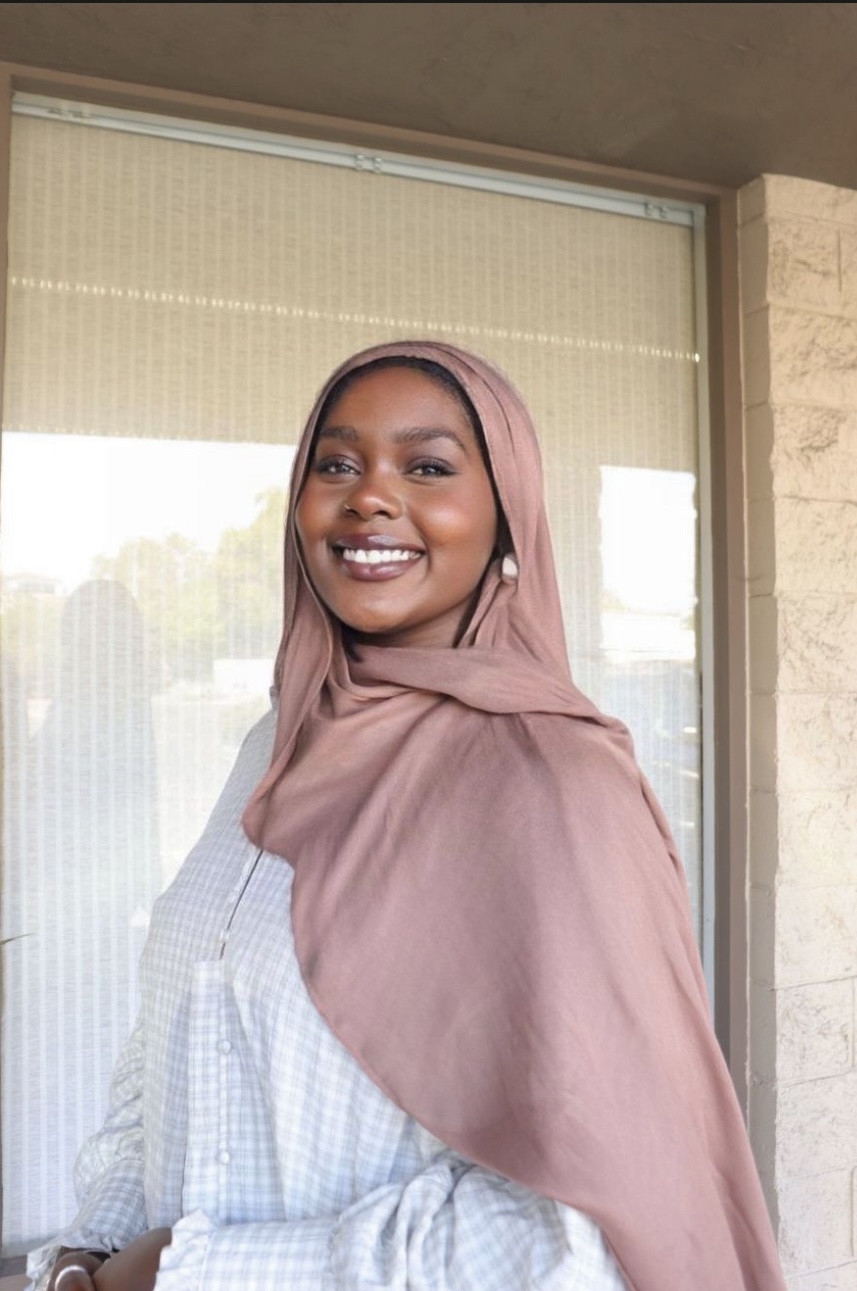
Undergraduate Major: SFSU, College of Health and Social Sciences, B.A Sociology
Global Health Interests: I’m interested to know about displacement stressors, and gut based inflammations within refugee populations. My overall interest are around Immigrant and Refugee Health, Healthcare Access, Nutritional Health, Gut Health, and preventative Medicine.
Global Health Field Experiences: Current Health Advocacy Lead at the United Women of East African Support Team center (UWEAST), Board member of the Sudanese American Physician Association (SAPA), Research Consultant at the UCSD Refugee Health Unit, past Refugee Behavioral Health Educator and Coordinator for JFS Breaking Down Barriers program, past clinician at the Institute for Applied Behavioral Analysis, and past research lead for CalFresh Healthy Living implementers. Previously conducted preliminary research for the San Diego Museum of Us.
Career Aspirations: I aspire to work as an epidemiologist for the World Health Organization (WHO) or the Center of Disease Control (CDC). in addition, I would also be interested in becoming a practicing Physician with a focus on refugee health.

Undergraduate Major: UCSD; B.S. Human Biology & B.S. Global Health with a minor in AAPI Studies
Global Health Interests: Social Determinants of Health, Health Equity, Health Accessibility and Policy, Community Health and Outreach, Women’s Health, Non-Communicable Diseases, and Preventative medicine.
Global Health Field Experiences: Currently a student volunteer for the HFiT (Health Frontiers in Tijuana) program, works as a medical assistant in BSV Neuro, and is a student researcher for the Global Health Policy and Data Institute/S-3 Research (analyzing flavored tobacco policy in California after Prop 31). Also involved with UCSD’s IHC (International Health Collective) non-profit organization as a project member for their STEM Education & Medical Education projects. Has worked/volunteered as the Co-President, External Outreach Chair, and Internal Fundraising chair for the UCSD chapter of the 501c3 non-profit organization M.E.M.O. (Medical, Educational, Missions and Outreach) that aims to provide medical and educational resources to underserved communities in SoCal and Vietnam and has participated in their 14G medical mission trip. Has also volunteered for Palomar’s Pathmaker Internship, student volunteer for M.E.M.O.’s Project Awaken, student volunteer for Street Corner Care, volunteer for Father Joe’s Villages, and previous student researcher volunteer for the Barnes and Panda Labs.
Career Aspirations: Marianne aspires to one day become a Physician that is dedicated in improving healthcare access and outcomes in underserved areas, especially areas that are HPSAs. Through patient care, research, and education, she aims to contribute to meaningful advancements in medical care and global health, particularly for marginalized and underserved communities. She hope that individuals get the care that they need, regardless of where they are on the social health gradient.

Undergraduate Major: UC San Diego- Human Biology B.S. with a minor in Psychology
Global Health Interests: Mental Health, Women's Health, and Addiction Medicine
Global Health Field Experiences: Volunteer at Scripps Mercy Chula Vista, AmeriCorps VIP (Volunteer Infrastructure Project) service at SBCS (formerly South Bay Community Services), Research Assistant at Kick It California/ Moores Cancer Center, Children's Mental Health Volunteer at SBCS, Study Abroad at Lund University in Lund, Sweden, and Manager of Operations Intern at the American Academy of Pediatric Neuropsychology.
Career Aspirations: Pediatric Psychiatry
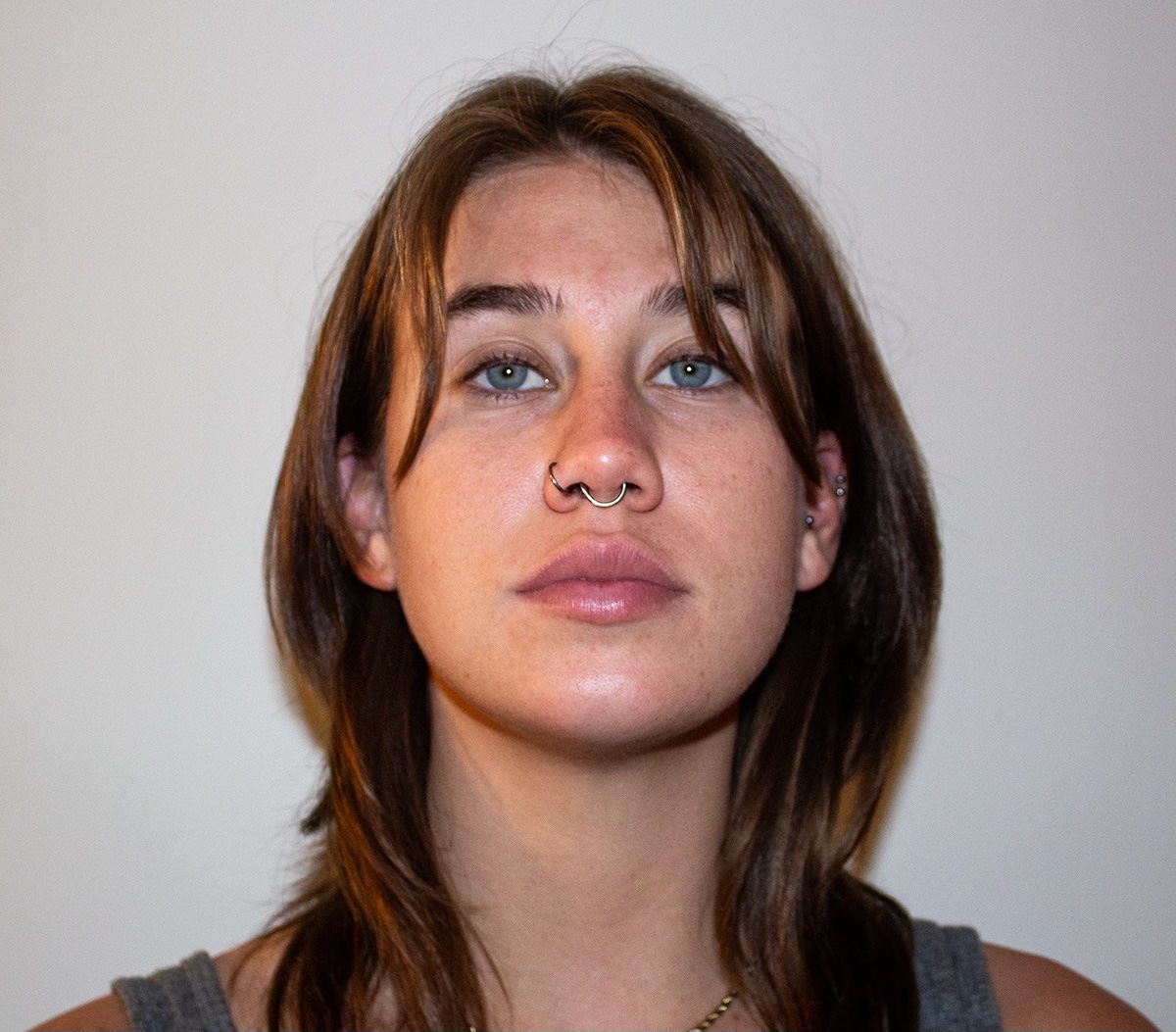
Undergraduate Major: UCSC, BS in Molecular Cellular and Developmental Biology and BA in Art
Global Health Interests: I am particularly interested in how global food systems and nutrition shape human health. I am also drawn to exploring the ways mental health influences physical health, as well as the role of community outreach and public health initiatives in strengthening overall community well-being.
Global Health Field Experiences: Volunteer at in LA Generals emergency room, Team lead for Venice Helping hub a grassroots organization aiding victims of the recent LA fires, Vaccination rollout intern for Santa Cruz County Health Center
Career Aspirations: My career goal is to pursue an MD with a strong foundation in global health, with the aim of practicing in emergency medicine. Alongside my medical career, I also hope to continue developing my artistic career as a meaningful complement to my professional work.
Undergraduate Major: American Univeristy, Women's, Gender and Sexuality Studies and Pre-Medicine
Global Health Interests: Women's Health, Non-Communicable Diseases, Preventative Medicine and Migrant Health.
Global Health Field Experiences: I have worked for the past 3 years at Bluerock Primary Care, a geriatric primary care catered to low-income seniors in Washington D.C.. At Bluerock I have held a variety of roles working both clinically as a medical assistant and more recently as the Team Manager. Currently, I serve as the Associate for Strategic Initiatives where I to improve the efficiency and reach of patient care, both within clinical settings and in the broader community, by linking patients to critical resources and implementing targeted health education programs.
Career Aspirations: In the future I hope to continue working on community health initiatives in the San Diego area and beyond. I have gained valuable hands-on patient care experience during my time at Bluerock and I am excited to partner that knowledge with the Master's in Global Health program here at UCSD.
Undergraduate Major: UCLA, B.S. in Physiological Science with a Minor in Global Health
Global Health Interests: Health policy, Migrant health, Global Mental Health, Maternal/Child Health, Women's Health, and Holistic healthcare.
Global Health Field Experiences: Refugee Health Alliance Volunteer at migrant shelters in Tijuana, Mexico Medical Scribe at UCSD Dermatology Student Researcher at the UCLA Jonas Lab, investigating cost-effective nanomedicine treatments in the Pediatric Oncology Department Palomar Pathmaker Intern in the Emergency Department and Birth Center Volunteer at UCLA Mattel Children’s Hospital and Cedars Sinai Hospital, Los Angeles.
Career Aspirations: As an aspiring physician, I am interested in the master’s in Global Health at UC San Diego to further explore how to serve communities impacted by long-term environmental and health burdens. This education will prepare me to work at the intersection of health policy and medicine, bringing cultural humility, lived experience, and structural understanding to both my classmates and future patients.
Undergraduate Major: University of California San Diego BS in Human Biology and Global Health
Global Health Interests: Health Equity, Decolonizing Global Health, Preventative Medicine and Healthcare Education, Global and Public Health, Medical Anthropology
Global Health Field Experiences: Volunteer in the Emergency Department at Rady's Children's Hospital working closely with the Child Life Specialists
Career Aspirations: Aspiring to become a physician dedicated to improving health outcomes through both clinical care and a deep understanding of global health systems. Building on my Master’s in Global Health, I aim to integrate my education on policy and community-based approaches to address health inequities, in hopes to serve diverse populations while contributing to initiatives that strengthen healthcare access worldwide.

Undergraduate Major: UC San Diego, Bachelor of Arts in Psychology
Global Health Interests: Mental Health, Women’s Health, Child and Adolescent Health, Minority Health, Healthcare Accessibility, Health Equity, Community Health and Outreach, Health Law and Policy, and Social Justice
Global Health Field Experiences: CPR/AED Certified by the American Heart Association, Certified Phlebotomy Technician, Paramedic Ride-Along Volunteer, Hospice Volunteer, Undergraduate Research Assistant in the Social Cognitive Development Lab at UC San Diego, Medical Scribe, Future Physician Leaders Intern, Behavioral Health Intern, and Hospital Volunteer
Career Aspirations: As an aspiring psychiatrist, I aim to utilize the knowledge and skills I gain from pursuing my Master of Arts in Global Health to effectively serve vulnerable populations and advocate for improved access to mental health resources for medically underserved groups worldwide.

Undergraduate Major: UCSD, B.S. in Human Biology, B.S. in Global Health
Global Health Interests: Mental Health, Geriatric Population, Adolescent Health, Alternative Medicine
Global Health Field Experiences: Health Frontiers in Tijuana Program Coordinator, Society of Asian Scientists and Engineers, Former Neurobiology Research Assistant, Dental Assistant
Career Aspirations: I would like to pursue dentistry, blending the knowledge of Global Populations with hands-on patient care. I wish to use dentistry as a means to educate, expand, and outreach to vulnerable populations through knowledge, teaching, and hands on care. I have a passion for teaching, working with my hands, and learning about different underserved communities and through Global Health I can truly explore this.

Undergraduate Major: UCSD, M.S. Biology Research Track, B.S. in Human Biology and Global Health, Minors in Psychology & Sociology
Global Health Interests: Antibiotic resistance, infectious disease, preventative medicine and community-based interventions, medical anthropology, harm reduction, and mental health
Global Health Field Experiences: Research experience: Training AI models for tumor segmentation in cancer imaging at the ACTRI; phage therapy for antibiotic-resistant infections at UCSD School of Medicine's Pathology Department; applying quantum theory in cancer cell communication and the tumor microenvironment with Houston Methodist; studying the role of viruses in neurodegeneration at Sanford Consortium; and supporting participant recruitment and surveys with unhoused communities with UCSD School of Medicine's Infectious Disease and Global Public Health. Volunteer work: Student educator with Homeless HEAL; Vice President of Communications for the Alzheimer’s Foundation of America at UCSD; Crisis Text Line volunteer; medical scribe in primary care; student nursing assistant at a rehabilitation center; and volunteer with Alzheimer’s San Diego and the Alzheimer’s Center at Cinco Ranch supporting older adults and caregivers. Publications: Turki, N. E. et al. (2025). A review of esophageal cancer research: emerging trends, progress and perspectives. Annals of Esophagus. Master’s thesis: Turki, N. E. (2025). Investigating the role of gene proteins in bacteriophage and the optimization of visualization assays for GFP-tagged Saccharomyces cerevisiae yeast and Danio rerio zebrafish.
Undergraduate Major: UCSD, B.S. in Human Biology with a minor in Global Health
Global Health Interests: Health policy, Health of Low-Income Communities, Psychiatry, Global Mental Health, Maternal/Child Health, Women's Health, Health Education and Dissemination, and Medical Anthropology
Global Health Field Experiences: UCGHI Student Ambassador, Off-Campus and Well-Being Peer Educator at UC San Diego's Basic Needs Center, Healthy RC Youth Leaders Student Lead working on public health projects in the city of Rancho Cucamonga, Reproductive Health Team Student Leader for Project Rishi @ UCSD working with the village of Vemavaram in India, Under the Scopes Biology Research Writer for Saltman Quarterly at UC San Diego, Public Relations Chair for Pink Ribbon Initiative at UCSD advocating for breast cancer awareness and research, Mental Health First Aid Certified by Mental Health America of San Diego County, Certified in Infectious Disease Transmission Models for Decision-Makers by The Johns Hopkins University via Coursera, iLead Professional Development Certification from UCSD Center for Student Involvement (CSI)
Career Aspirations: Amoha aspires to tackle healthcare from a standpoint that intersects diagnosis and humanity, being mindful of the person behind the pathology. She hopes to integrate her passion for medicine with global health policy to enact administrative changes with research-based interventions in the healthcare system. She hopes to be a practicing physician, dedicated researcher, and life-long learner.

Undergraduate Major: UCSD, Bachelor of Arts in Global Health
Global Health Interests: Housing and Health, Global Mental Health, Women's Health, Migrant Health, Adolescent Health, Health Policy
Global Health Field Experiences: Research Intern at Center on Gender Equity and Health / UC Berkeley jointly, Team Coordinator for Partners in Health Engage at UC San Diego, Housing and Policy Intern at City of San Diego
Career Aspirations: Aspiring PhD student and Professor of Global Health and Urban Studies. Research interest in the intersection between housing policy and health equity.
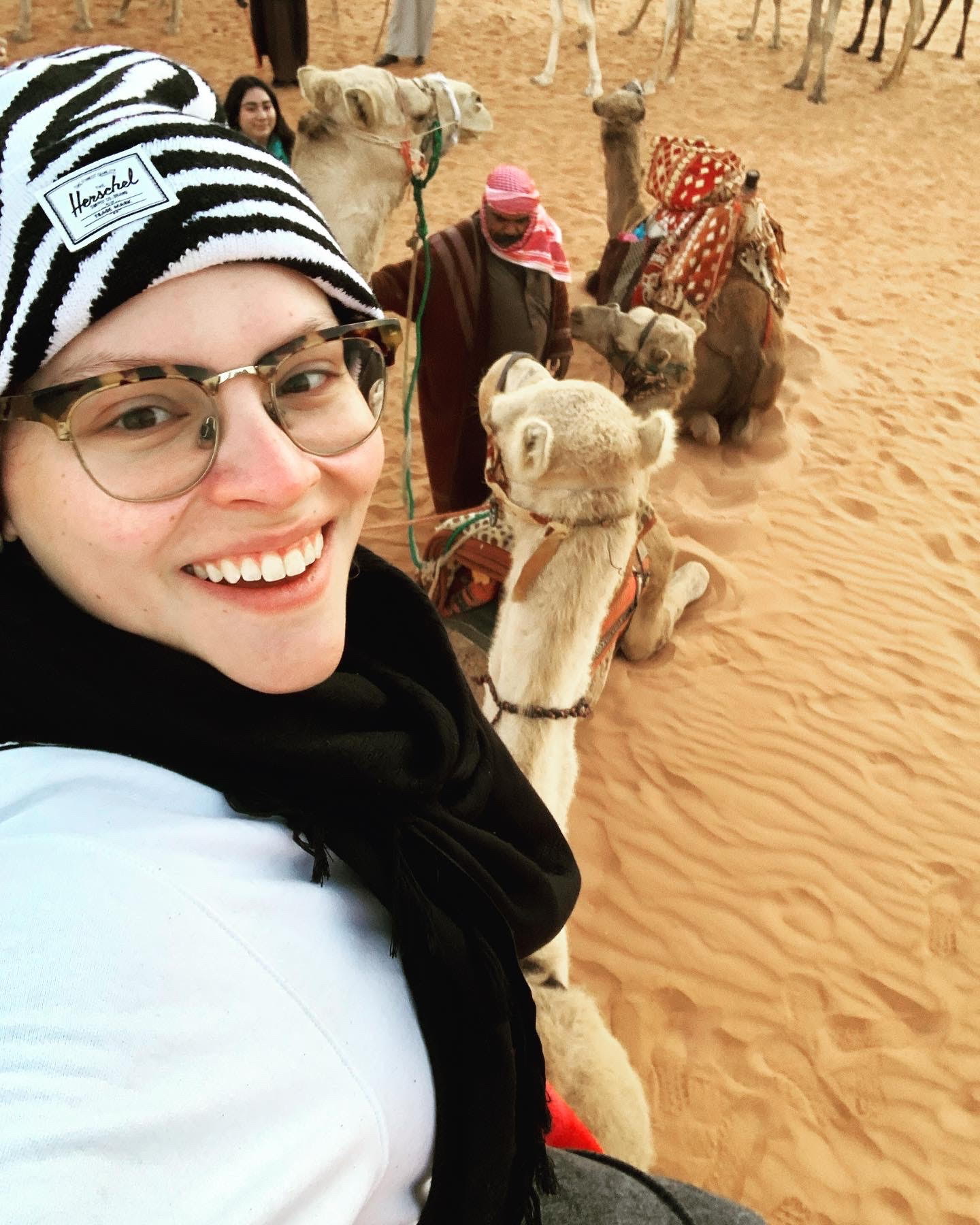
Undergraduate Major: San Diego City College, Associate Degree in Anthropology with a Concentration in Archaeology & UCSD, Bachelor's in Anthropology with a Concentration in Biological Anthropology
Global Health Interests: Humanitarian aid in crisis zones, forensic anthropology in humanitarian contexts, human rights and health equity, legal advocacy for health and human rights
Global Health Field Experiences: Research assistant in TASET laboratory at UCSD, Completed senior thesis researching humanitarian forensic identification in Guatemala post-civil war
Career Aspirations: Forensic anthropologist for an NGO in humanitarian aid, Human rights lawyer, Advocate for healthcare access
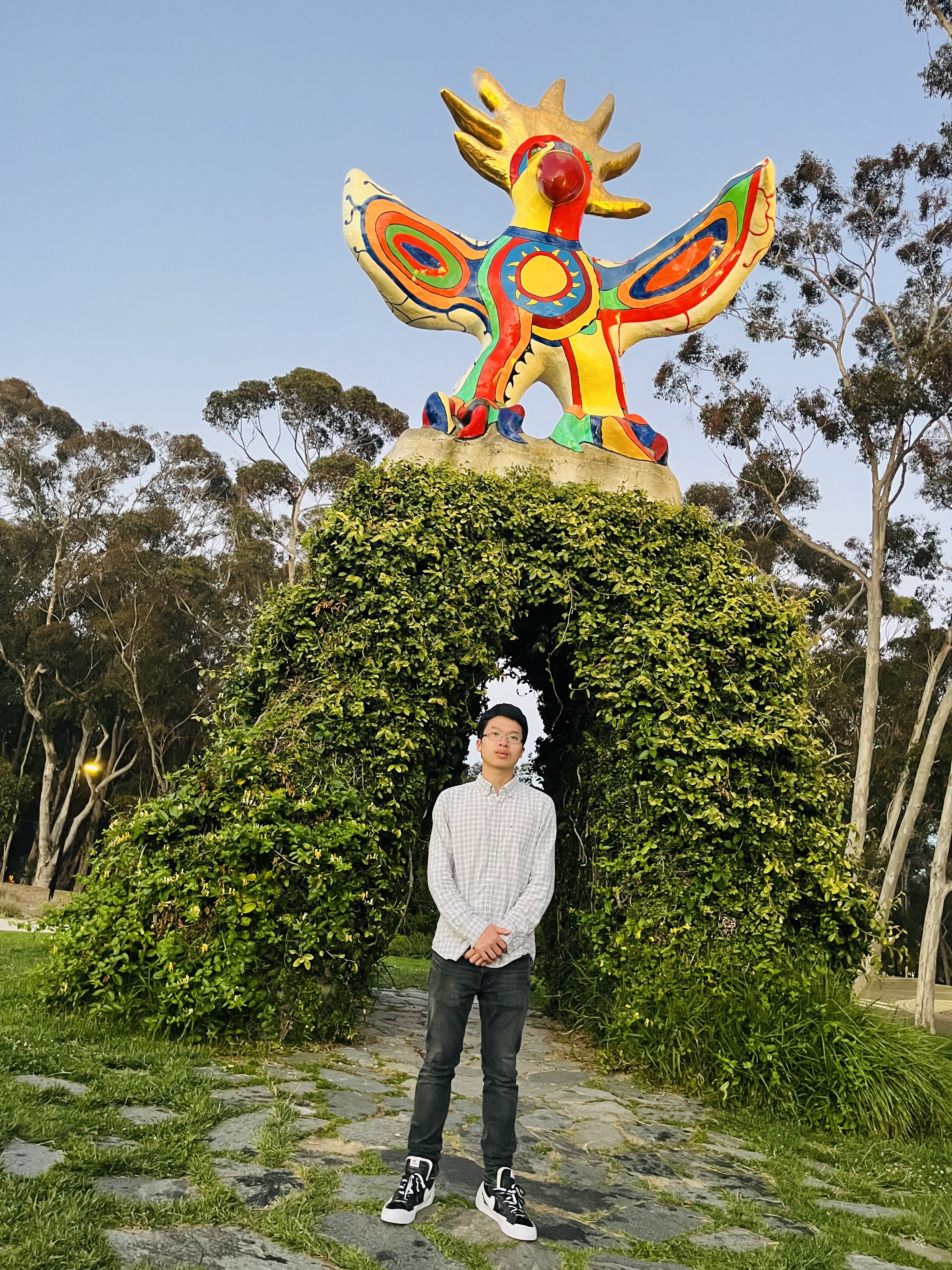
Undergraduate Major: UCSD, B.S. in Psychology with a Minor in Global Health
Global Health Interests: Immigrant Health, Health Disparities, HIV Prevention, Healthcare Access in LMIC, Substance Use Disorder
Global Health Field Experiences: Volunteer at Community Pathways Project (PATH San Diego), Volunteer at UCSD Office for Students with Disabilities, Behavioral Technician (ABA) Internship at Behavior Frontiers, Student Mentor at UCSD Mentor Collective
Career Aspirations: I hope to gain a deep understanding of global health issues, focusing on healthcare access, substance use, health equity, disease intervention, and prevention. I plan to be a health advisor in a medical setting and community healthcare system.
Undergraduate Major: UCSD, B.A. in Communications with a Minor in African American Studies
Global Health Interests: Infectious disease prevention, harm reduction, and looking at the impacts of poverty on quality of life issues.
Global Health Field Experiences: For the last 14 years I have worked in some manner of public health or health care related field in the non-profit sector, as well as in a large healthcare setting. I spent close to nine years working locally with Family Health Centers of San Diego in all aspects of HIV, HCV, and STI prevention. Some of my duties included case management for individuals recently diagnosed, as well as those who had been living with both HIV and HCV for linkage to care and other services that were provided. I spent several years working on the first clean syringe exchange program in San Diego that was run by FHCSD. Individuals were provided all of the necessary equipment to utilize harm reduction strategies for injection drug use, as well as offered services for wound care, medical referrals, and connection to drug treatment programs in want. I was also fortunate to have been part of one of the first teams in the state of California to implement rapid testing and linkage to care for HCV. This allowed both providers and patients the opportunity for short-term, successful treatment of the virus that has impacted so many in the injection drug use community. I have also spent several years working in the trauma unit with UCSD dealing with numerous comorbidities in patients that ranged from traumatic brain injuries to mental health challenges, and anything else that comes into a hospital. I was also provided an opportunity to help those individuals who were injured crossing the border, which was an experience that was rewarding because of how kind the people were.
Career Aspirations: My previous work has been in disease prevention and surveillance so I would be curious to see what possibilities may come after school. I would also be interested in policy work with the county or state. Ultimately I am not sure what the future holds, so I'll be keeping an open mind. I look forward to working with all of my professors and peers in the next year of our program.
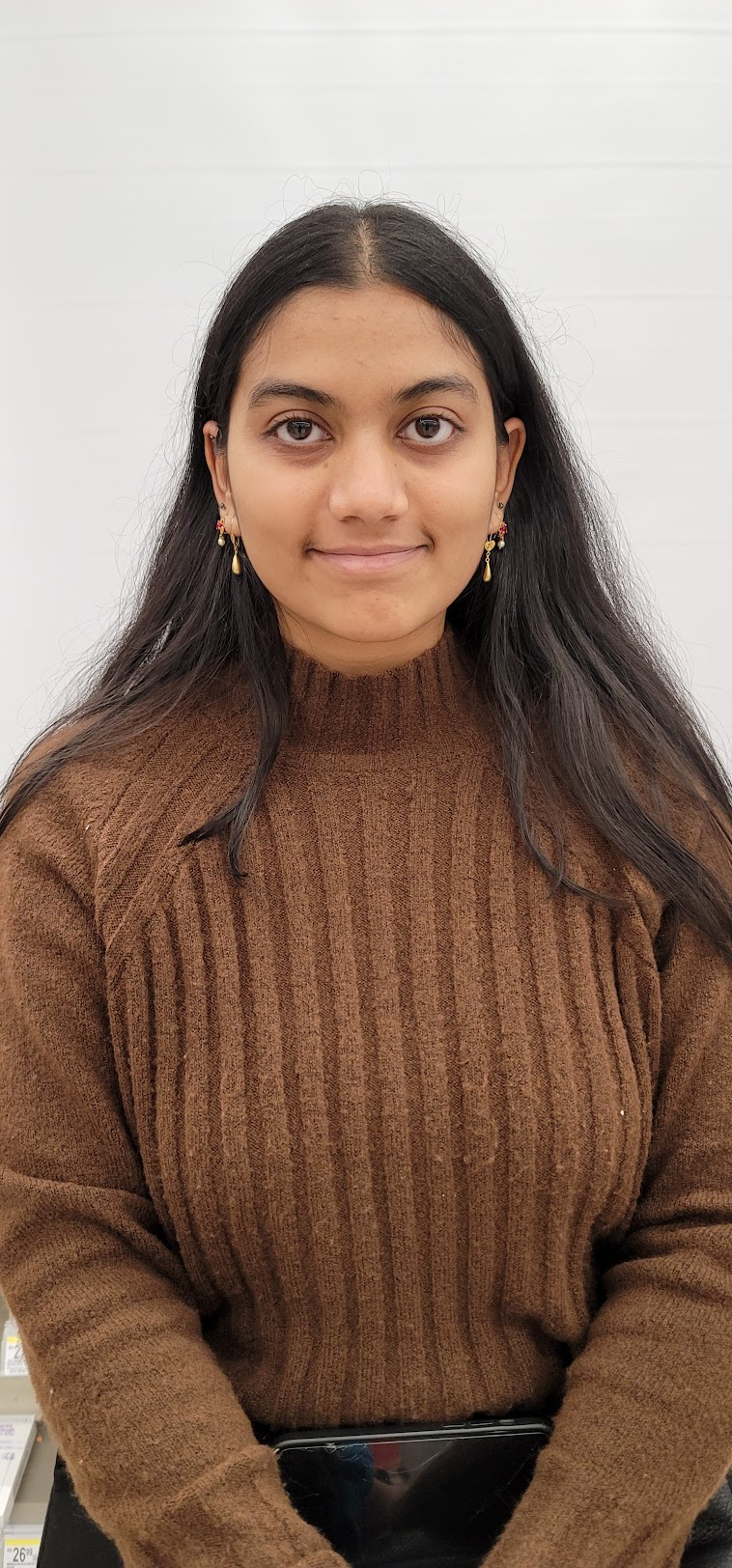
Undergraduate Major: Whitman College, B.A. Psychology with a minor in French and Francophone Studies
Global Health Interests: Women's Health, Reproductive Health, Global Health Equity, Global Mental Health, Neuroscience and Brain-Body Interactions, Psychiatry, Psychology(Clinical, Developmental, Disorders)
Global Health Field Experiences: Worked for a non-profit organization called InReach, which connects LGBTQ+ individuals of diverse backgrounds to resources including Medical Care, Clothing, Employment, Transportation, Mental Health support, etc. As a resource intern, I researched and contacted suitable organizations that could be used by those who access the InReach platform, and performed data entry based on my results. Completed an Injury and Violence Prevention Course offered through University of Washington Harborview Prevention and Research Center. Tasks involved interacting with HIPRC Injury Prevention Education Modules. I acquired knowledge on social determinants of health, new and old thinking for injury and violence related professional development, equitable access to violence and injury research knowledge among historically marginalized students in all areas of health science research. Volunteering at a clothing bank called New Circles, sorting clothing for people living in low income neighborhoods in Toronto.
Career Aspirations: Roles with intersections of Global Health, Neuroscience and Clinical Psychology; maintaining emphasis on health disparities of women and marginalized communities.

Undergraduate Major: Moorpark Community College- Anthropology, University of California, San Diego- Sociocultural Anthropology
Global Health Interests: Muslim women's health, HIV intervention program creation, literate cultural and structural competency, medical anthropology
Global Health Field Experiences: Surveying of vulnerable populations in north, central, and south Thailand: conducted field work throughout 5 weeks to assess and produce interventions to treat and prevent HIV in cisgender female sex workers; ultimately created a thorough grant proposal to implement the intervention decided upon.
Career Aspirations: Medical anthropology and work within the United Nations and UNESCO is a part of Mitra's ambitions. Ultimately, she hopes to return to a teaching position after some time of working and acquiring a PhD.
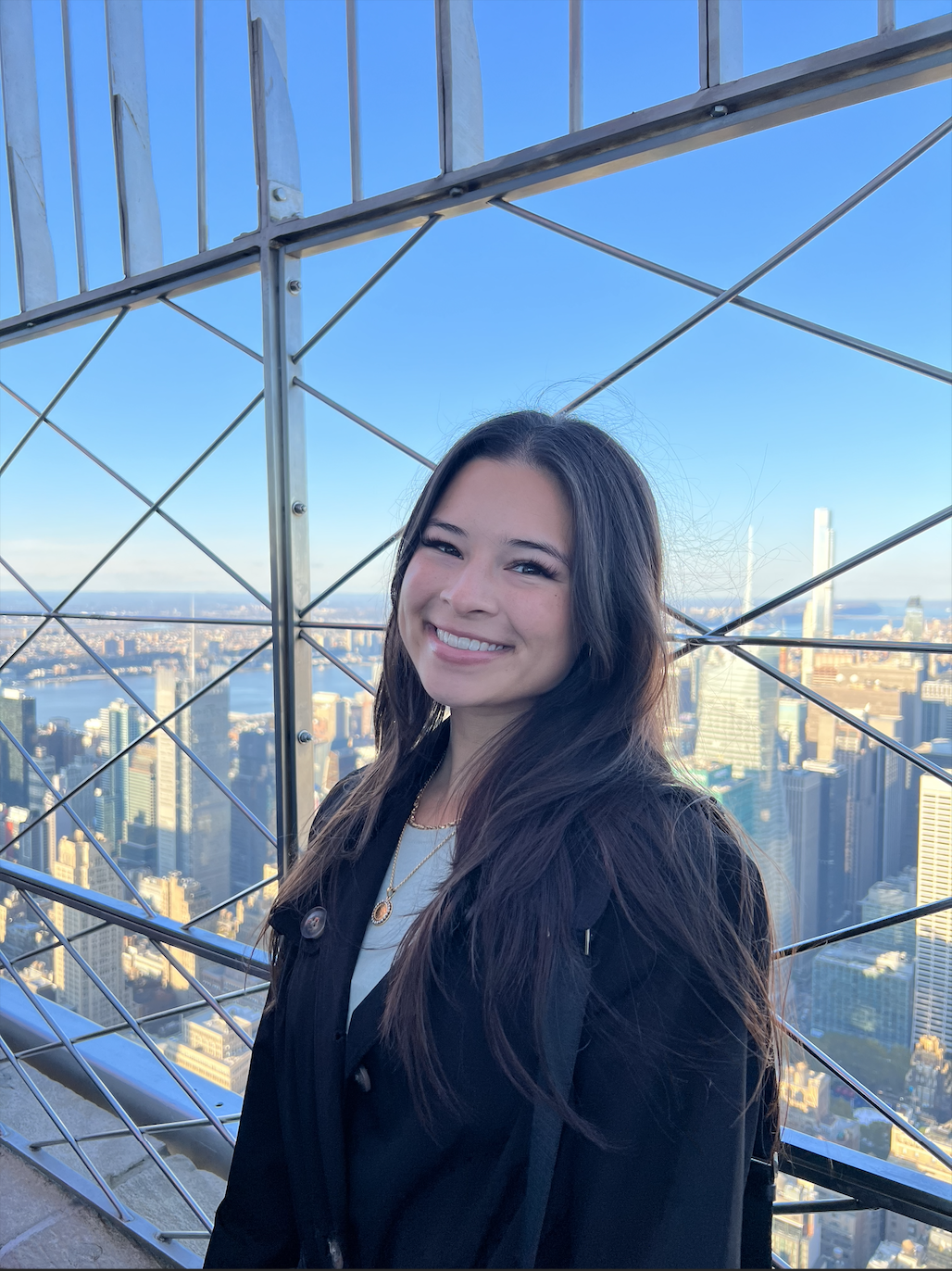
Undergraduate Major: UCSD, B.S. in Global Health with a minor in Business
Global Health Interests: Reproductive Health, Health System Preparedness and Response, Health Program Management, Anthropological Perspectives, Decolonizing Global Health
Global Health Field Experiences: Volunteer at Jacobs Medical Center, Internship at SD Neurosurgery, Lab Assistantship at UCSD Moores Cancer Center, UCSD HMP3 member
Career Aspirations: Kristin plans to gain field experience in global health following this master's program and before working towards an M.D.. She hopes to utilize her understanding of global health as a doctor to reshape the relationship between healthcare systems and underrepresented communities and contribute to the fostering of self-reliant healthcare systems in LMICs.
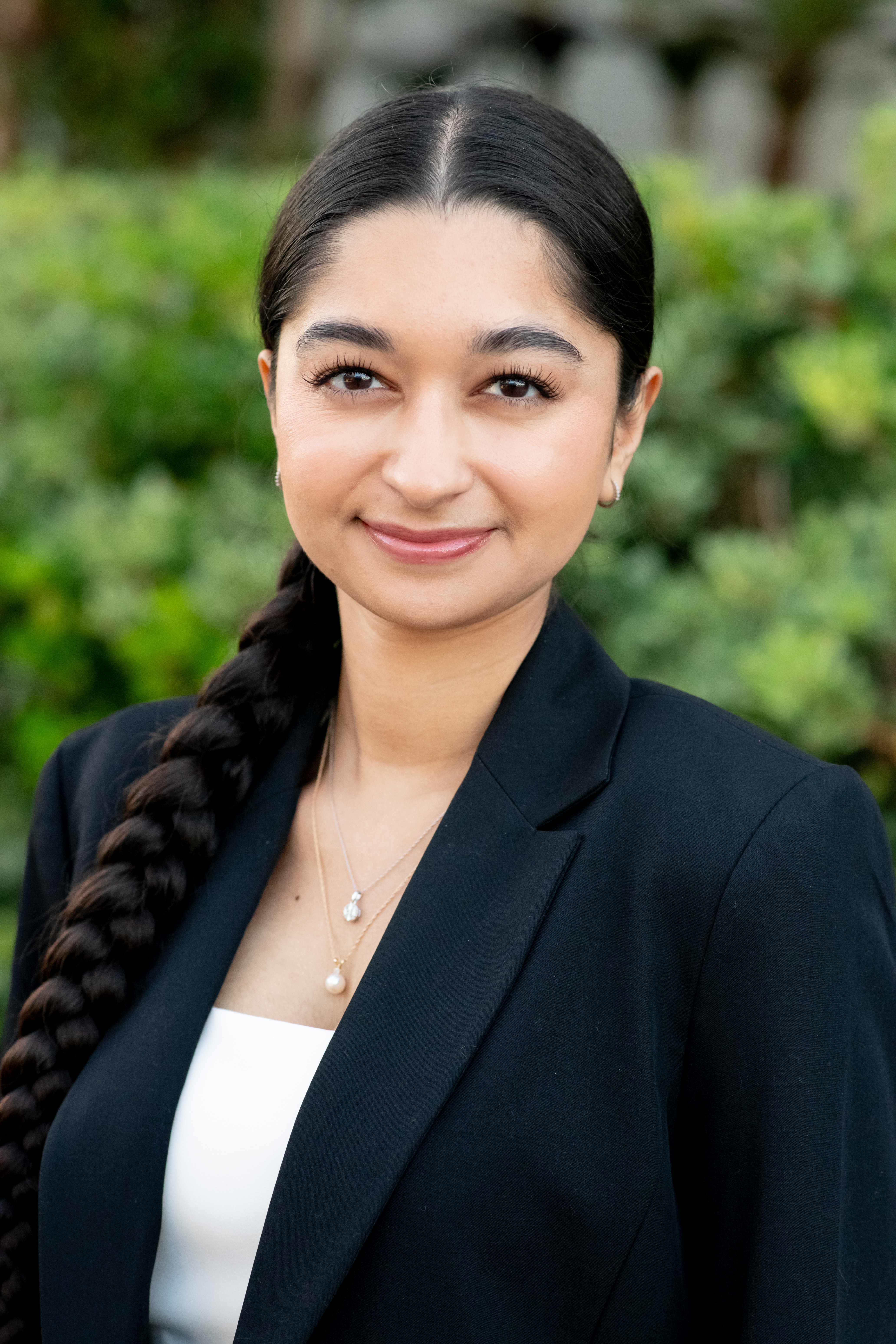
Undergraduate Major: UC San Diego, B.S. in Molecular and Cell Biology with a Minor in Global Health
Global Health Interests: Emergency Medical Services Accessibility and Adaptation, Child and Adolescent Health, HIV Intervention, Infectious Diseases, NCD Management/Treatment, Healthcare Accessibility, Health Policy, Adaptation of Healthcare Systems for Low/Middle-Income Communities (LMICs)
Global Health Field Experiences: NREMT/California EMT Certification and Licensure, American Heart Association BLS Provider Certification, Swim Instructor Certification (Currently working at UCSD Recreation), Student Intern at Health Frontiers in Tijuana (HFiT) Clinic, Volunteer at VA Medical Center, Volunteer at Jacobs Medical Center, Lab Assistant at UCSD Mayfield Lab, Community Building Chair for UCSD UNICEF Club, Student Researcher at LSUHSC Shreveport with The Science & Medicine Academic Research Training Program (SMART)
Career Aspirations: Throughout this master's program, Ashleyn hopes to gain more insight into the applications of global health within the healthcare field to assist her in her future endeavors as a physician. She believes that there is an importance in understanding all factors of disease beyond just those that are pathological and hopes to integrate her field experience in global health to shape her approach to patient care. Although she is unsure of which specialty she wishes to specialize in, Ashleyn hopes to obtain her M.D. to work as a practicing physician with a focus on improving healthcare accessibility and equity.

Undergraduate Major: UC San Diego; Global Health Major
Global Health Interests: My global health interests include the mitigation of infectious diseases in underdeveloped nations and implementing and/or creating new health policies for the betterment of the lives of those in marginalized communities. I’m a lifelong advocate of health access and I push for increased health resource retention, as communities are oftentimes not given the tools to prolong healthy lifestyles.
Global Health Field Experiences: UC San Diego Basic Needs Center Administrative Assistant, Black Tech Link Program Coordinator
Career Aspirations: My aspiration is to work for the Center of Disease Control (CDC) in a program management or health promotion field.

Undergraduate Major: National School of Anthropology and History (Mexico City), Bachelor's of Social Anthropology
Global Health Interests: Medical anthropology, Indigenous peoples health, migrant and refugees health, indigenous traditional medicine, plant medicine
Global Health Field Experiences: Gayne Ortega has conducted research on rituals, dances, and healing practices of indigenous cultures in the Northwest of Mexico. She has over six years of experience in Public Health sector, designing participatory action research projects for mental health programs. Her current project focuses on indigenous peoples healing, re-thinking community-based mental health services; strengthening language, culture, and spirituality to promote indigenous communities' well-being.
Career Aspirations: Following my Master’s in Global Health, I plan to pursue a PhD specializing in Medical Anthropology.

Undergraduate Major: UCSD, B.S. in Global Health
Global Health Interests: Maternal and Child Health, Reproductive Health and Healthcare Systems, Reproductive Health Policy, Women's Physical and Mental Health, Holistic Care, Healthcare Accessibility/Equity
Global Health Field Experiences: Student Research Assistant MotherToBaby Pregnancy Research Studies, Volunteer Doula UCSD Hearts and Hands, Youth Ambassador LifeStream Blood Bank, Team Survivor San Diego Blood Bank, COVID-19 Trained Contact Tracer, Student Health Advocate Sexual Health Cohort
Career Aspirations: Practicing Physician with a focus on women's health
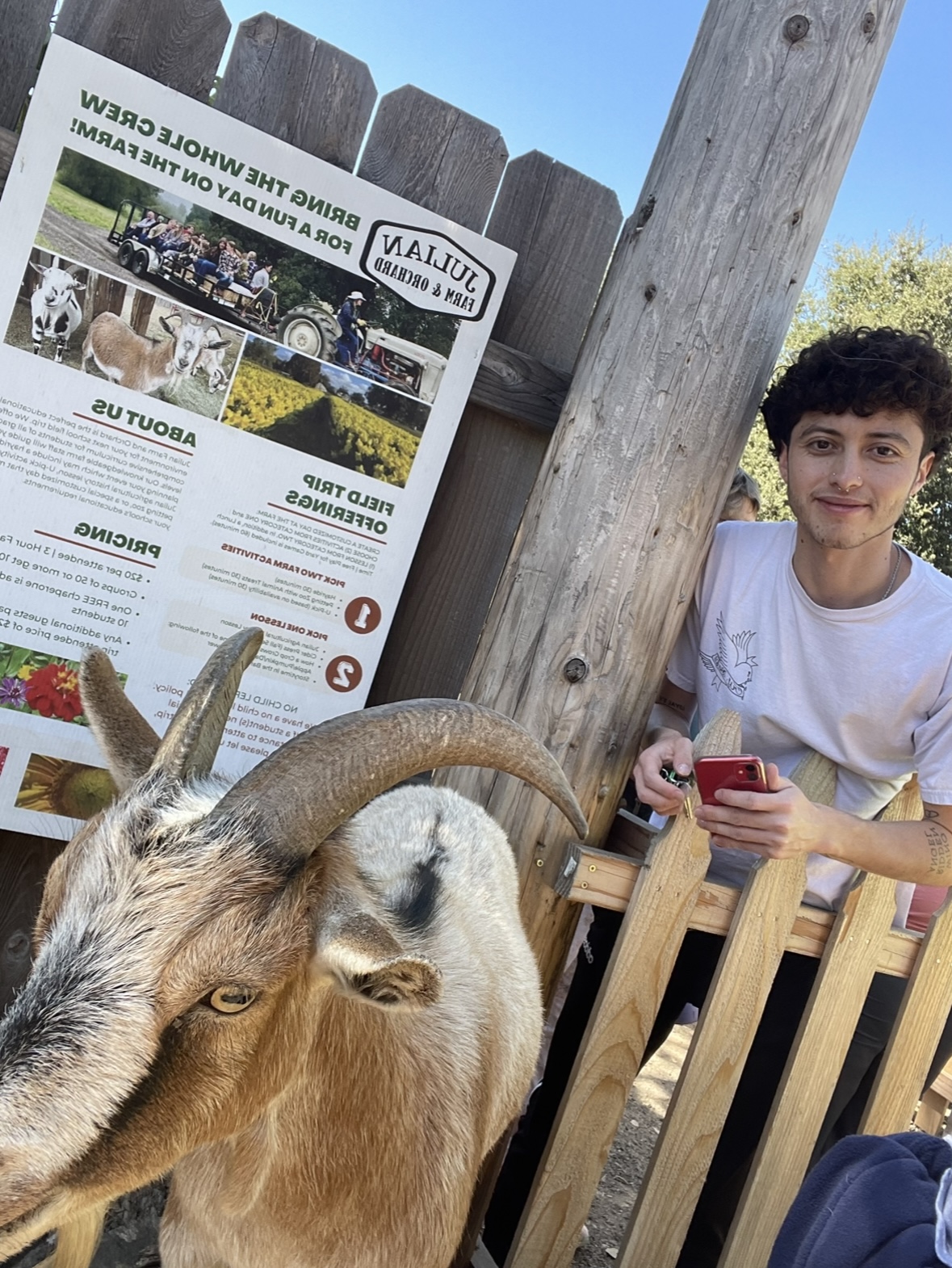
Undergraduate Major: UCSD, B.S. in Global Health with a minor in General Biology
Global Health Interests: Refugee and Immigrant Health, Food Security, Health Care Access and Quality, and Mental Health
Global Health Field Experiences: Health Frontiers in Tijuana (HFiT) internship
Career Aspirations: With plans on pursuing a Master's degree in Global Health and attending medical school, I hope to bring an integrative approach to my future practices. This involves taking into consideration the social determinants of health which is a vital component that is often overlooked.
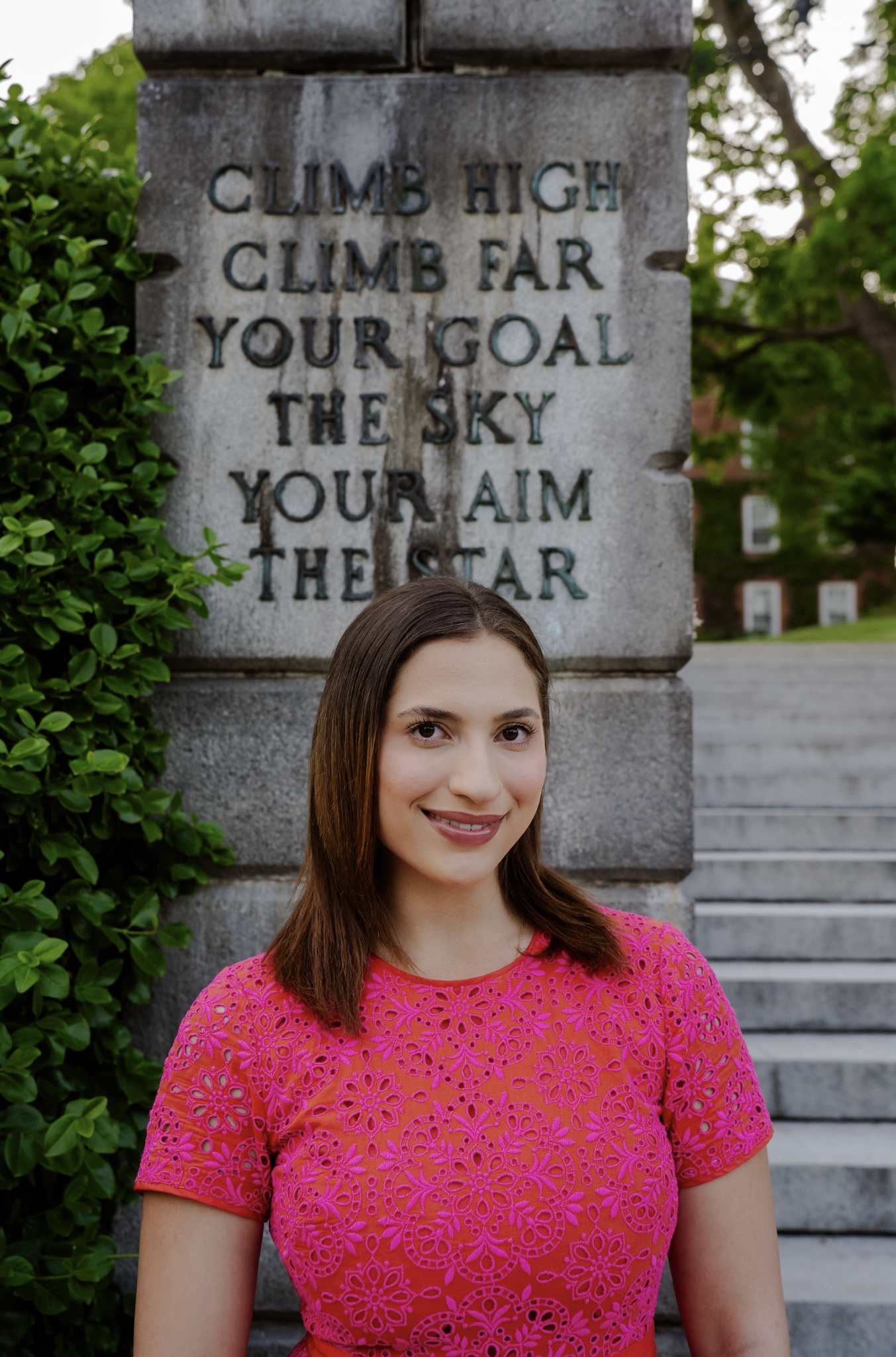
Undergraduate Major: Williams College, B.A. in Arabic Studies and Miramar College, A.A. in Biology
Global Health Interests: Medical Anthropology, Sexual Health, Health Equity, Community Empowerment through Health Education, Immigrant and Refugee Health, Preventative Medicine, Nutritional Health, Ritualistic and Cultural Healing, Gut Health and its relation to Mental Health
Global Health Field Experiences: Pathmaker Intern at Palomar Health
Undergraduate Major: UCSD, B.S. in Global Health with a Minor in Spanish Literature
Global Health Interests: Women's Health, Maternal and Child Health, Health Equity, Medical Anthropology, Healthcare Education, Decolonizing Global Health, Reproductive Health and Reproductive Rights
Global Health Field Experiences: Global Health Horizons Honors Thesis Student at UC San Diego, Student Research Assistant at MotherToBaby Pregnancy Research Studies
Career Aspirations: After getting my Master of Arts in Global Health, I hope to attend medical school to obtain an MD and specialize in obstetrics. I would like to focus on aiding women of color in their pregnancy to create a positive birthing experience.
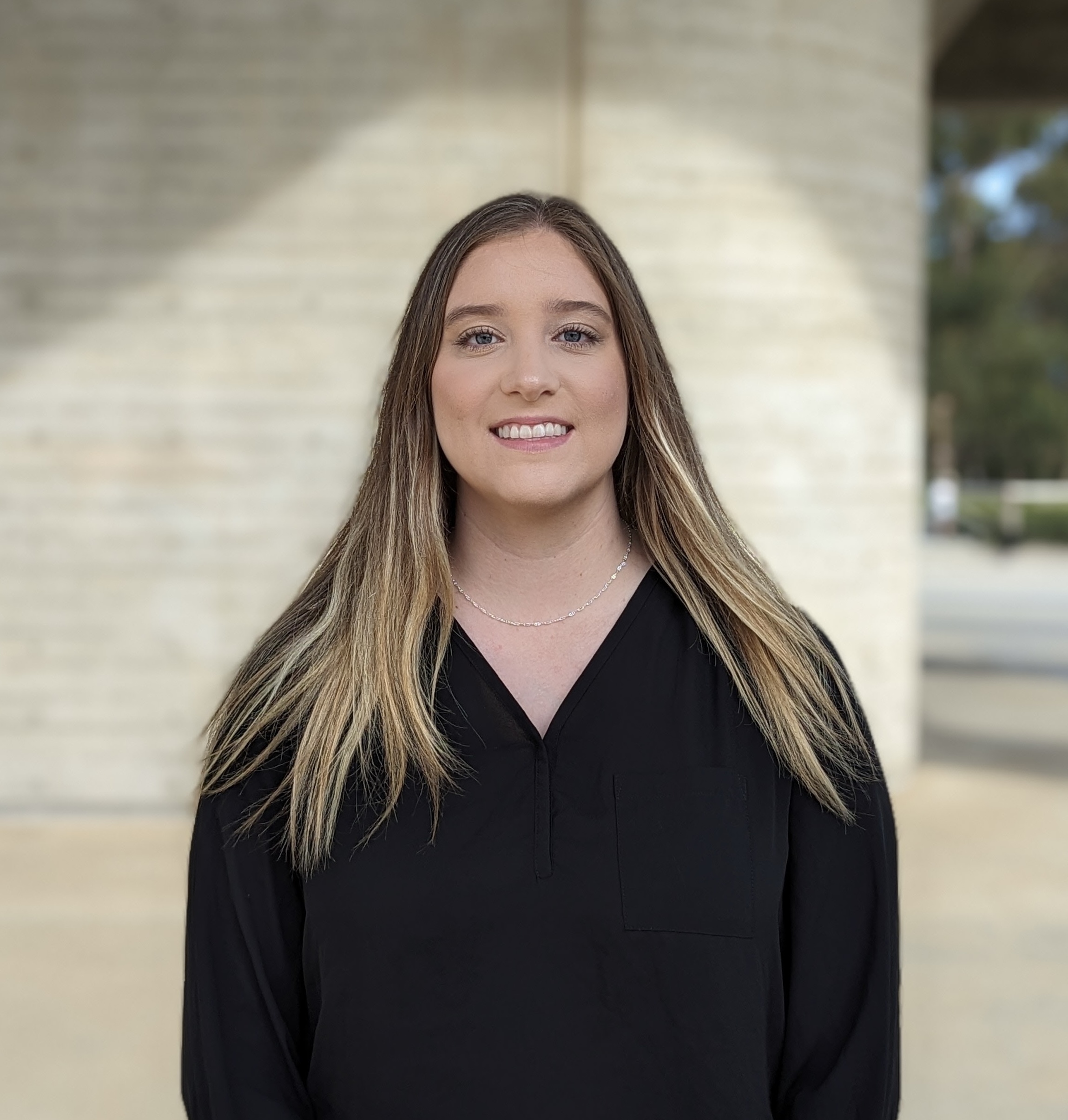
Undergraduate Major: UCSD, B.S. in General Biology with a minor in Global Health
Global Health Interests: Health Equity, Mental Health, Women's Health, Comprehensive Healthcare Services, Healthcare Access for Displaced Populations
Global Health Field Experiences: Volunteer/Coordinator for the nonprofit organization Alpha Miracle Foundation, Pathmaker Internship at Palomar Health, Stop the Bleed Trained by UC San Diego, Basic Life Support (CPR/AED) Certified by the American Heart Association, Crowd Management Certified by the National Association of State Fire Marshals, National Registry of Emergency Medical Technicians (NREMT), California State Certified EMT by the California Department of Public Health, San Diego County Certified EMT by San Diego County Emergency Medical Services
Career Aspirations: Nicole would like to transition from her Master's into further education and a medical career, applying her understanding of global health challenges to the care of individual patients. With a good grounding in global health issues, Nicole would like to merge her clinical skills with public health experience in meeting diverse health needs and improving patient outcomes. She is equally committed to continuing her involvement in volunteering and non-profit work, striving to give back to the community through both her professional practice and humanitarian efforts. In combining her medical career with continued community service, Nicole aspires to make a significant impact on local and global levels by working toward eliminating health disparities and promoting the well-being of underserved populations through dedicated service and advocacy.
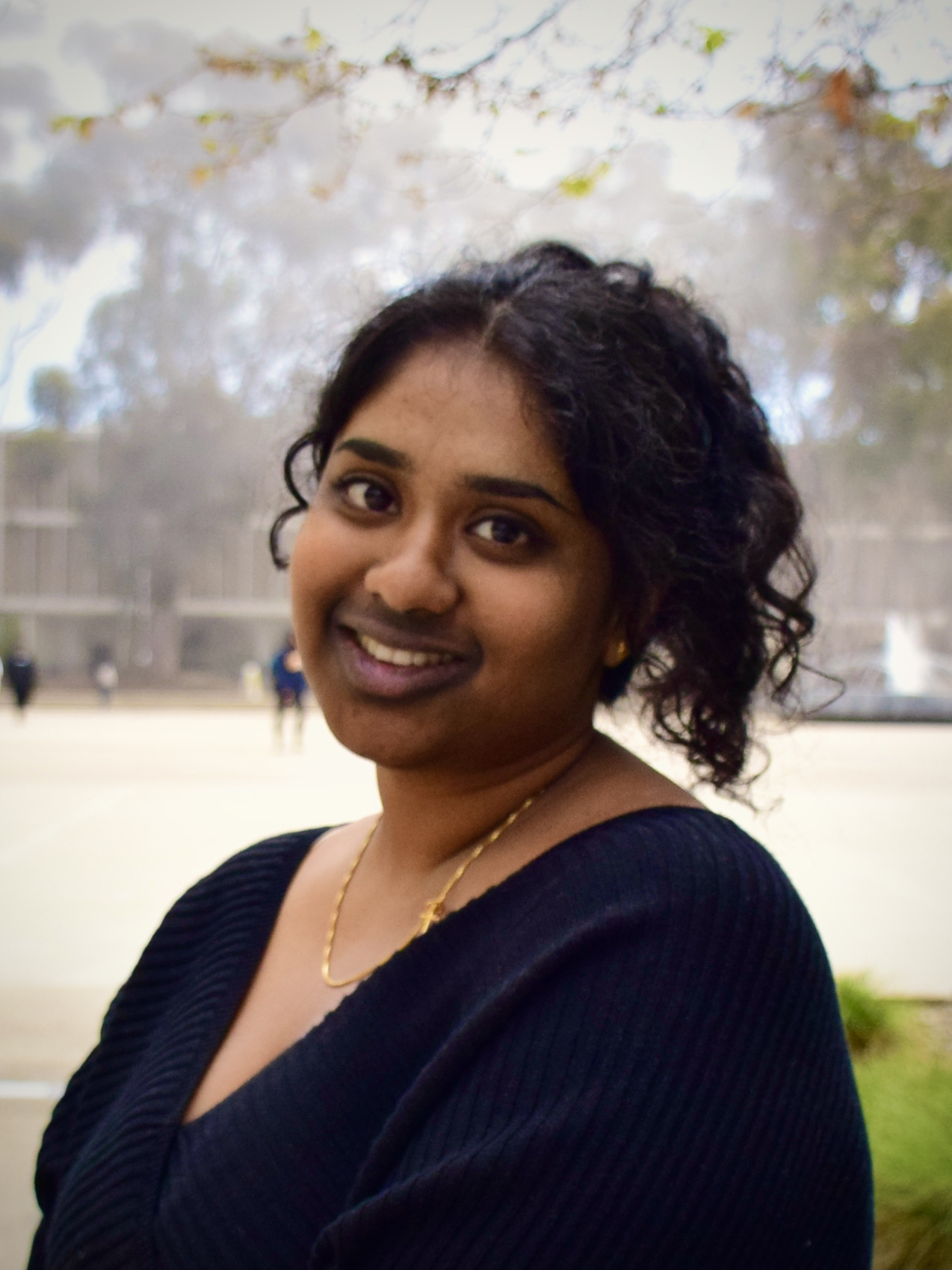
Undergraduate Major: UC San Diego, B.S. in Molecular/Cell Biology & B.S in Global Health
Global Health Interests: Maternal/ Child Health, Healthcare Equity, Primary Care in Resource-Limited Settings
Global Health Field Experiences: Global Health Horizons Honors Thesis Student at UC San Diego, Pathmaker Intern at Palomar Health, Hospice Volunteer at Silverado Hospice, Fundraising Chair/ Community Advisor for American Medical Student Association at UC San Diego, Resident Assistant at Revelle College
Career Aspirations: Aspiring MD, primary care provider in under-resourced areas. I hope to learn about holistic forms of healing around the globe.

Undergraduate Major: UC San Diego B.S. in Global Health & Neurobiology
Global Health Interests: Women's and Children's Health; Adolescent Mental Health; Health Equity and Community Medicine
Global Health Field Experiences: CFHI Global Health in the Philippines (Remote Island Medicine Program); Horizons Honors Thesis at UC San Diego
Career Aspirations: I hope to enter medical school to hopefully become a pediatrician/pediatric psychiatrist to serve marginalized communities and through this be able to use my position as an advocate for mental healthcare.
Undergraduate Major: UC San Diego, Public Health with Concentration in Community Health Sciences
Global Health Interests: Health Disparities, Underrepresented Communities, Latin American Health & Healing
Global Health Field Experiences: Research Experience, Clinical Experience, Internships, Volunteering
Career Aspirations: Pediatric General Practitioner, along with Global Health MD/Advocate
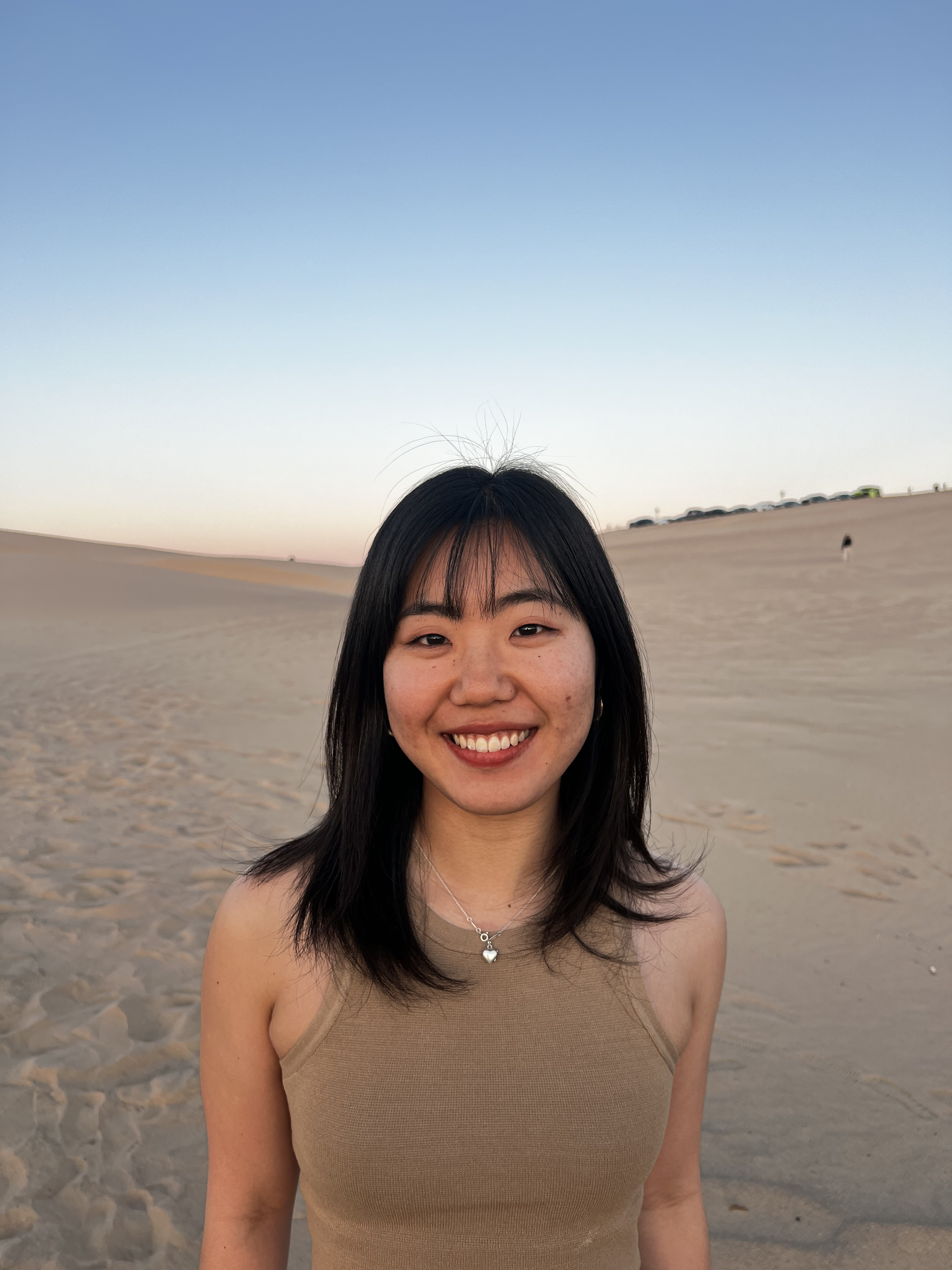
Undergraduate Major: UC San Diego B.S. in Global Health, and B.A. in International Business
Global Health Interests: Integrating One Health into healthcare systems, dismantling colonial healthcare perspectives, alternative health practices, integrating diverse methods of healing into healthcare systems, health equity
Global Health Field Experiences: Student Health Assistant for The Zone (UCSD HPS)
Career Aspirations: Health program management/coordinator, health engagement consultant, health engagement and equity research

Undergraduate Major: UC San Diego Bachelors degree in Human Biology, and Minor in Global Heath
Global Health Interests: Community Heath and Outreach, Health Equity, Preventative Healthcare Education, Global and Public Heath
Global Health Field Experiences: Heath Frontiers in Tijuana, Global Brigades in Honduras providing comprehensive healthcare to rural communities, Smiles International Foundation in Tecate, Mexico working with maxillofacial surgeons who provide free surgeries for young patients afflicted with cleft lip and palate, and volunteering with UCSD pre-dental society providing free or low cost comprehensive oral health to under-resourced communities of San Diego
Career Aspirations: Dental school, with an aspiration to use my position as a healthcare provider to administer comprehensive care to under-resourced and marginalized communities through community outreach involvement
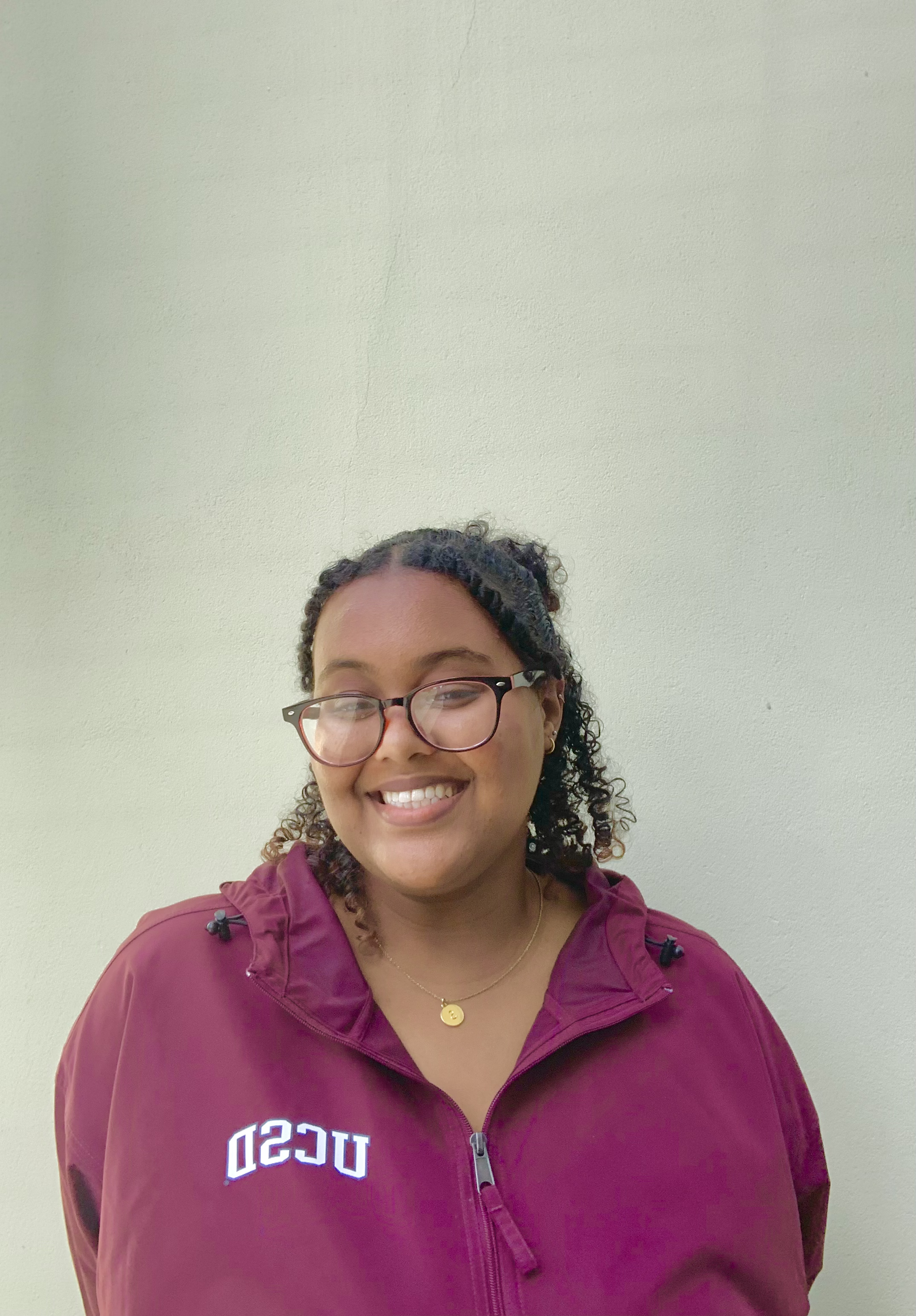
Undergraduate Major: UC San Diego B.S. in Global Health & Biological Anthropology
Global Health Interests: Infectious Disease Epidemiology, Clinical Epidemiology, Health Diplomacy, Health Policy, Vaccine Availability, Disease Prevention & Control, Global Health, & Public Health
Global Health Field Experiences: Undergraduate Research Intern for the Department of Metagenomics at Boz Life Science Research and Teaching Institute, Global Health Horizons Honors Thesis Student at UC San Diego, UC San Diego Global Seminar Participant at Granada, Spain, Student Intern/volunteer for CALPIRG Students, Student Counselor/Peer Mentor for OASIS's 2EXCEL program
Career Aspirations: Epidemiologist, Program Manager in the Health Department for a Government Agency or an NGO, Health Promotor, Environmental Health Scientist


Undergraduate Major: UC Riverside B.S. in Biology, and B.S. in Anthropology
Global Health Interests: Health Equity, Health Policy, Healthcare Education, Housing and Healthcare
Global Health Field Experiences: Climate Corps environmental educator, Kids Interaction and NeuroDevelopment Lab, and the Mustard Seed Project
Career Aspirations: Global health research and program development for an NGO
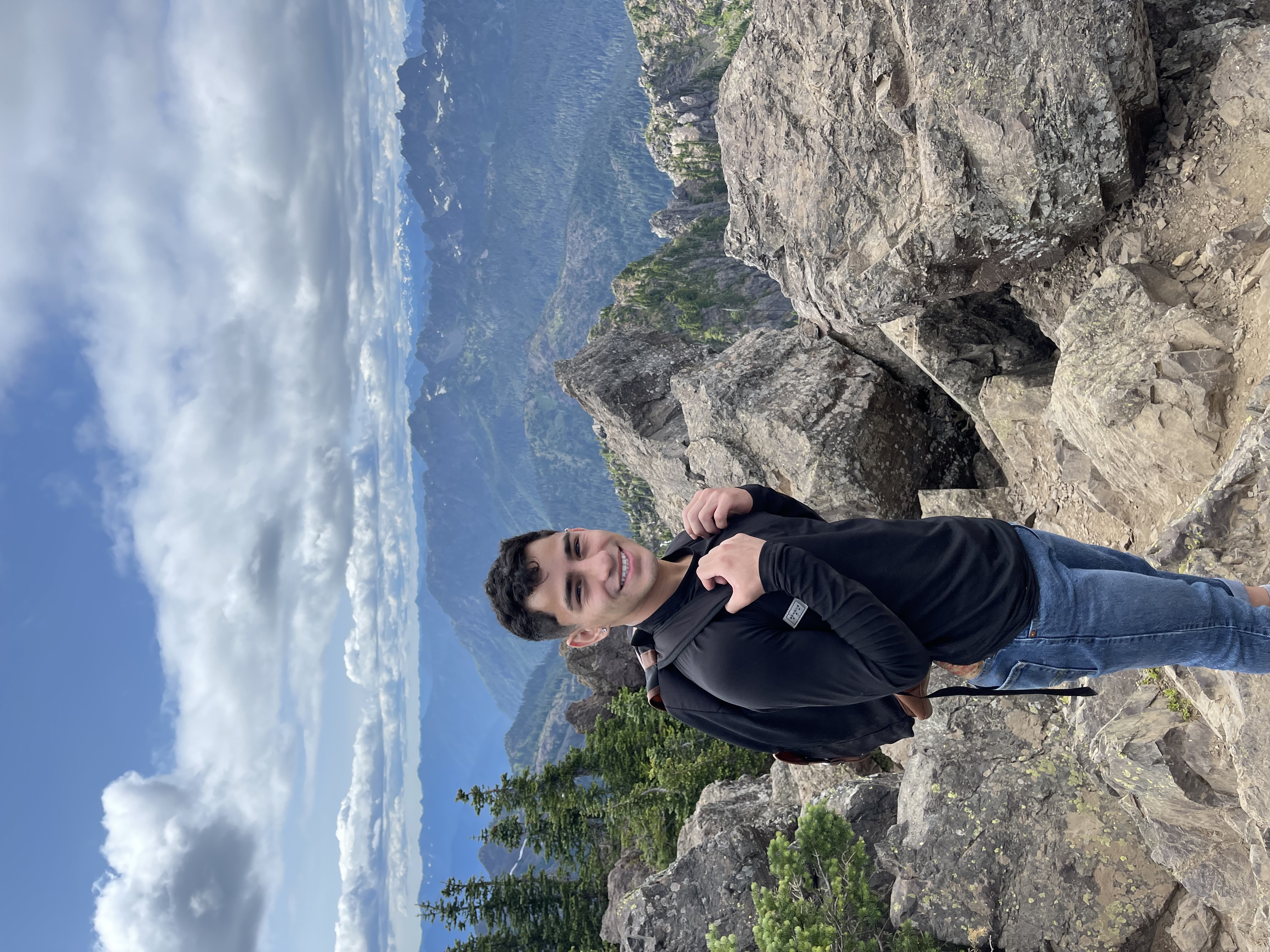
Undergraduate Major: UC San Diego B.S. Global Health Major, with a Minor in General Biology
Global Health Interests: Health equity and Reproductive rights. Nutritional Health and International Food Disparities. Global Emergency Medicine
Global Health Field Experiences: Health Frontiers in Tijuana Intern, Health Frontiers in Tijuana Student Coordinator, Flying Samaritans Member
Career Aspirations: Aspiring Emergency Medicine Physician interested in Global Emergency Medicine. To open free clinics implementing global health principles to provide emergency healthcare in resource-limited settings
Undergraduate Major: UC San Diego B.S. Global Health, Psychology Minor
Global Health Interests: Maternal & Child Health, WaSH, Mental Health, Reproductive Health, Health Equity, Communicable Diseases, Preventive Health Interventions, Immigration Health
Global Health Field Experiences: Gravity Water Public Relations Coordinator, Patient Engagement Specialist with Family Health Centers of San Diego, Health Frontiers in Tijuana Intern, Mental Health Services Project Assistant at Miramar College
Career Aspirations: NGO Project Management, Maternal & Child Health Research with a focus on marginalized populations, Research Coordinator, Program implementation, WaSH Volunteer
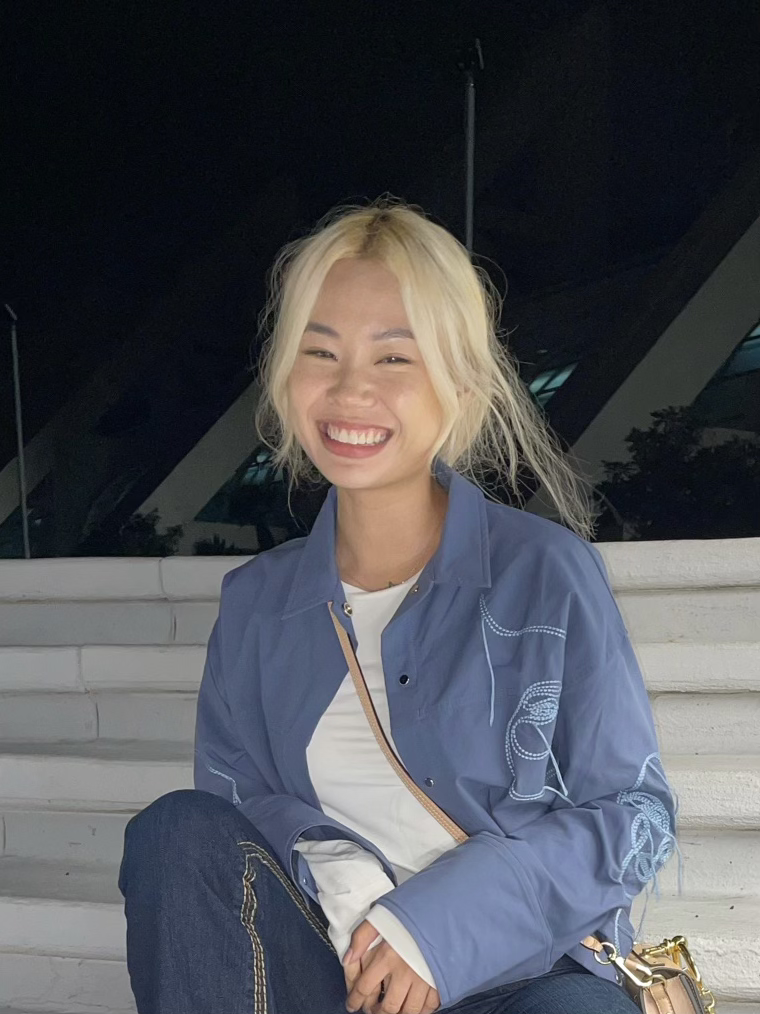
Undergraduate Major: UC San Diego B.S. in Global Health
Global Health Interests: Addressing limited resources in marginalized communities, mental health, health care accessibility
Global Health Field Experiences: HFiT, Shileys Eye Institute
Career Aspirations: Medical School
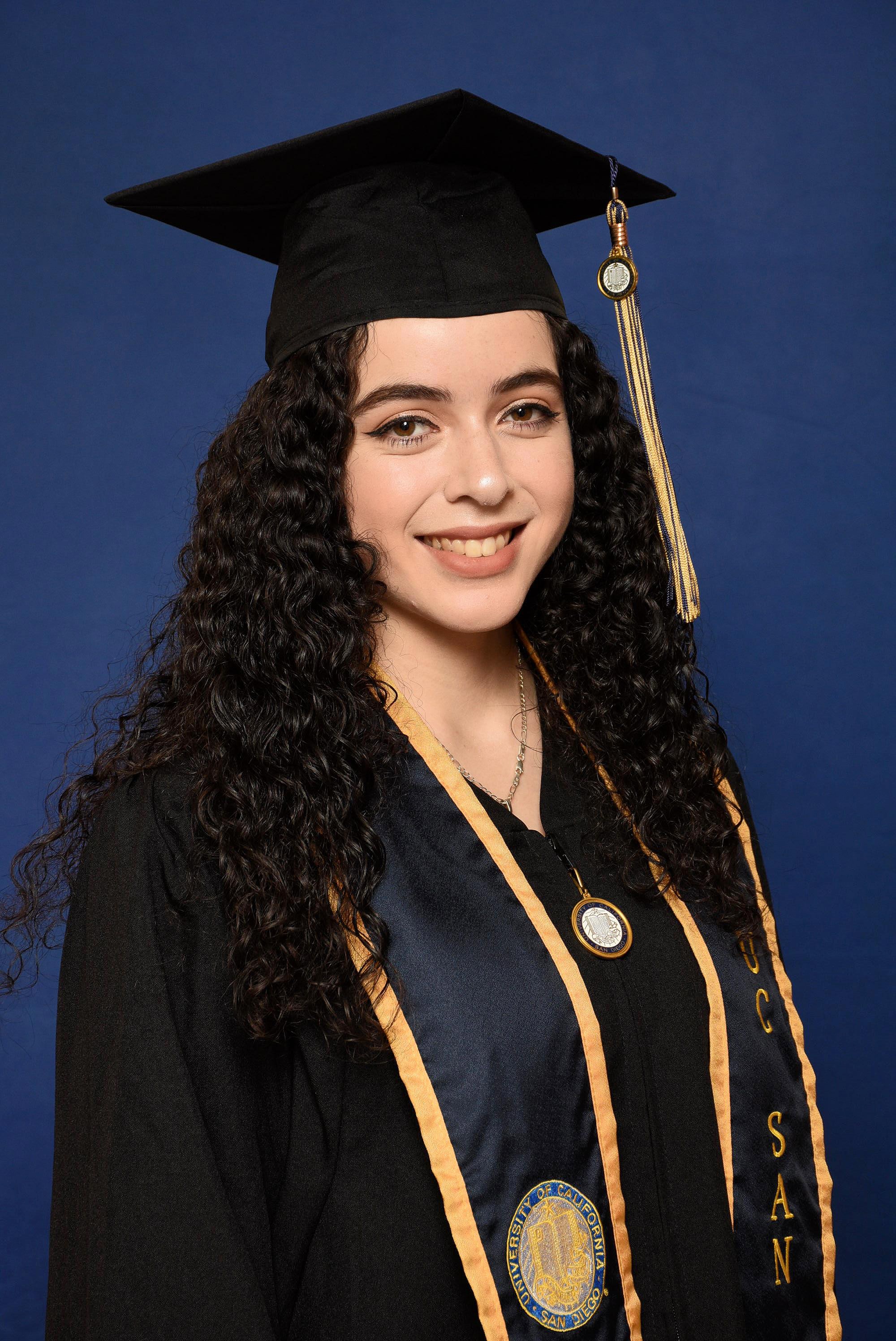
Undergraduate Major: Merritt College (Oakland, CA), Health Sciences; UC San Diego (La Jolla, CA), Global Health
Global Health Interests: Community Health & Outreach, Pediatrics, Immigrant Health and Underserved Communities access to health and services
Global Health Field Experiences: Rady's Children's Hospital (San Diego, CA), Medical/Surgical & Hematology/Oncology Clinic departments; Health Career Connections Internship, Native American Health Center (Oakland, CA)
Career Aspirations: I aspire to be a part of a career in which I can provide community support and perform community outreach in terms of health services and access. I am interested in becoming a nurse and working in an underserved community that lacks access to necessary health services and basic needs.
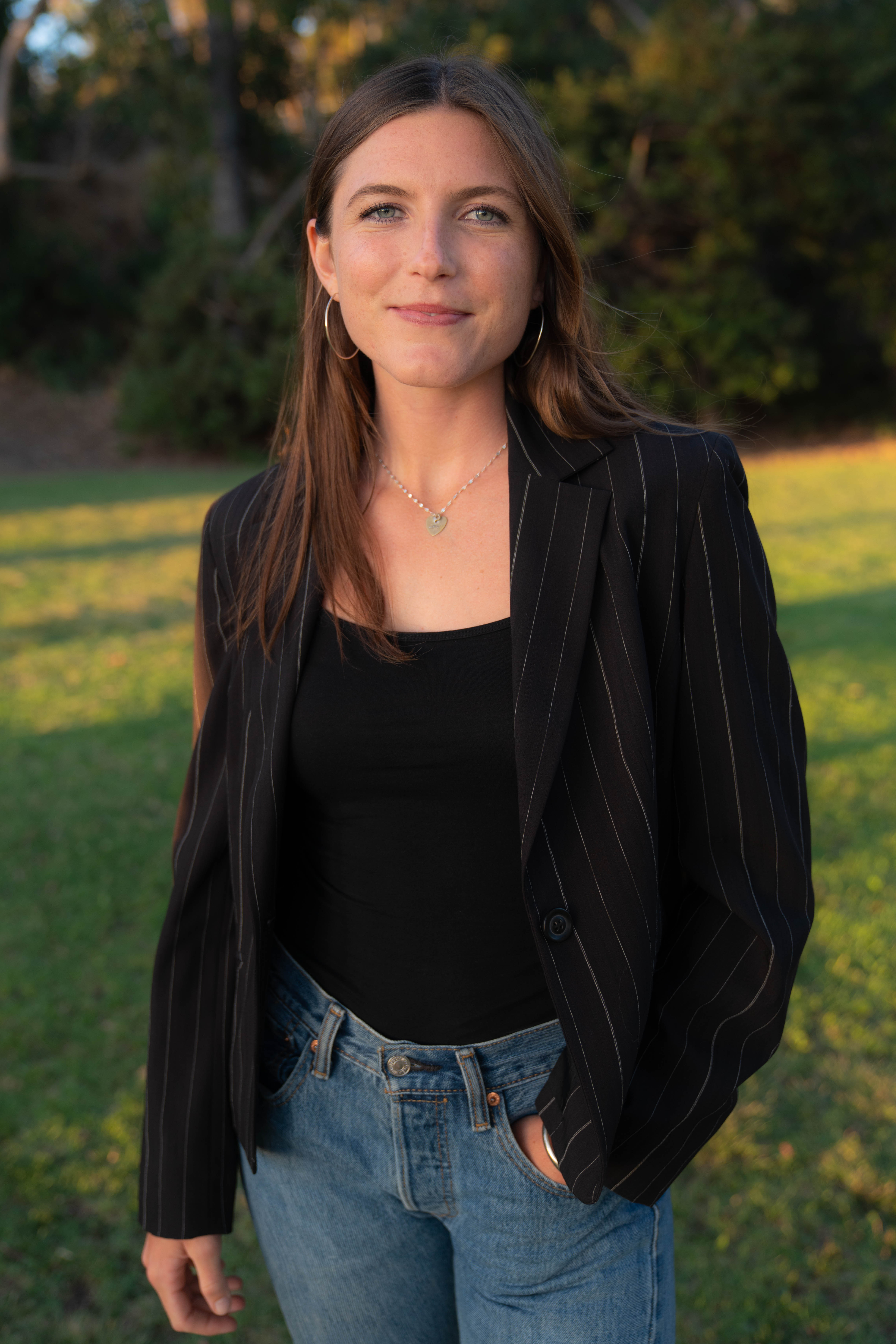
Undergraduate Major: UC Davis, International Relations Major, Spanish & Public Health Double Minor
Global Health Interests: Maternal and Child Health, Women's Mental and Physical Health, Reproductive Health and Healthcare Systems, Refugee and Migrant Health, Healthcare Education, Community Health and Outreach, Holistic Health, Medical Anthropology, Latin American Health & Healing, Nonwestern Medicine and Healing
Global Health Field Experiences: Community Resource Specialist Intern at the Sacramento County Health Center, Planned Parenthood Federation of America Community Outreach Volunteer, English Teacher Volunteer at the Women's Resilience Center through the International Rescue Committee
Career Aspirations: Healthcare Educator and Program Manager, creating projects to foster health and wellness for women and children refugees, and migrants in Latin American countries. Medical anthropology research, focusing on maternal and child health
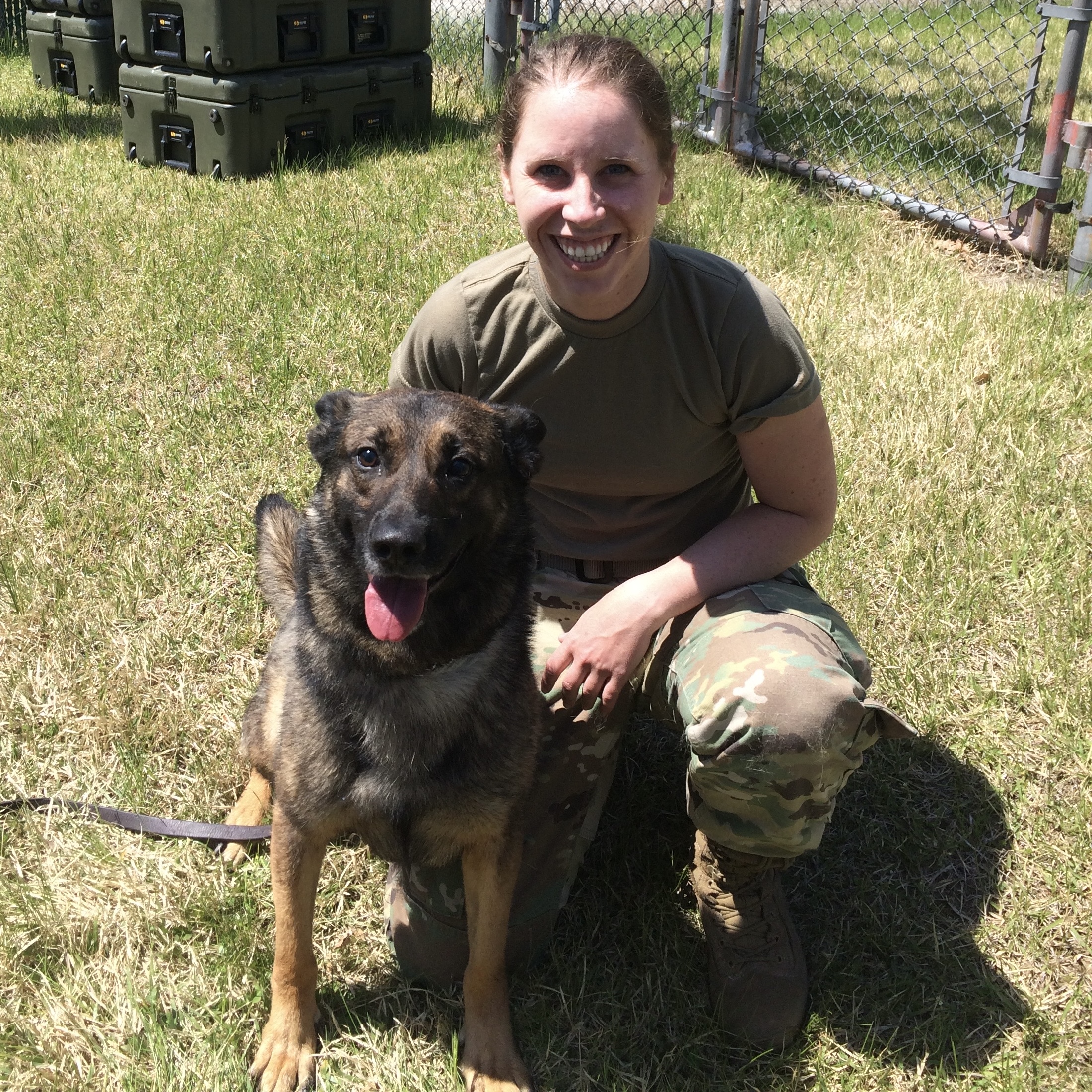
Undergraduate Major: UCLA B.S. in Biology (2010), and B.A. in French (2010); Kansas State University, Doctorate of Veterinary Medicine (2015)
Global Health Interests: One Health: apply the principles of the interdependency of human, animal, and environmental health with a unified approach to Global Health principles and endeavors.
Global Health Field Experiences: Global Health Engagement as part of military service
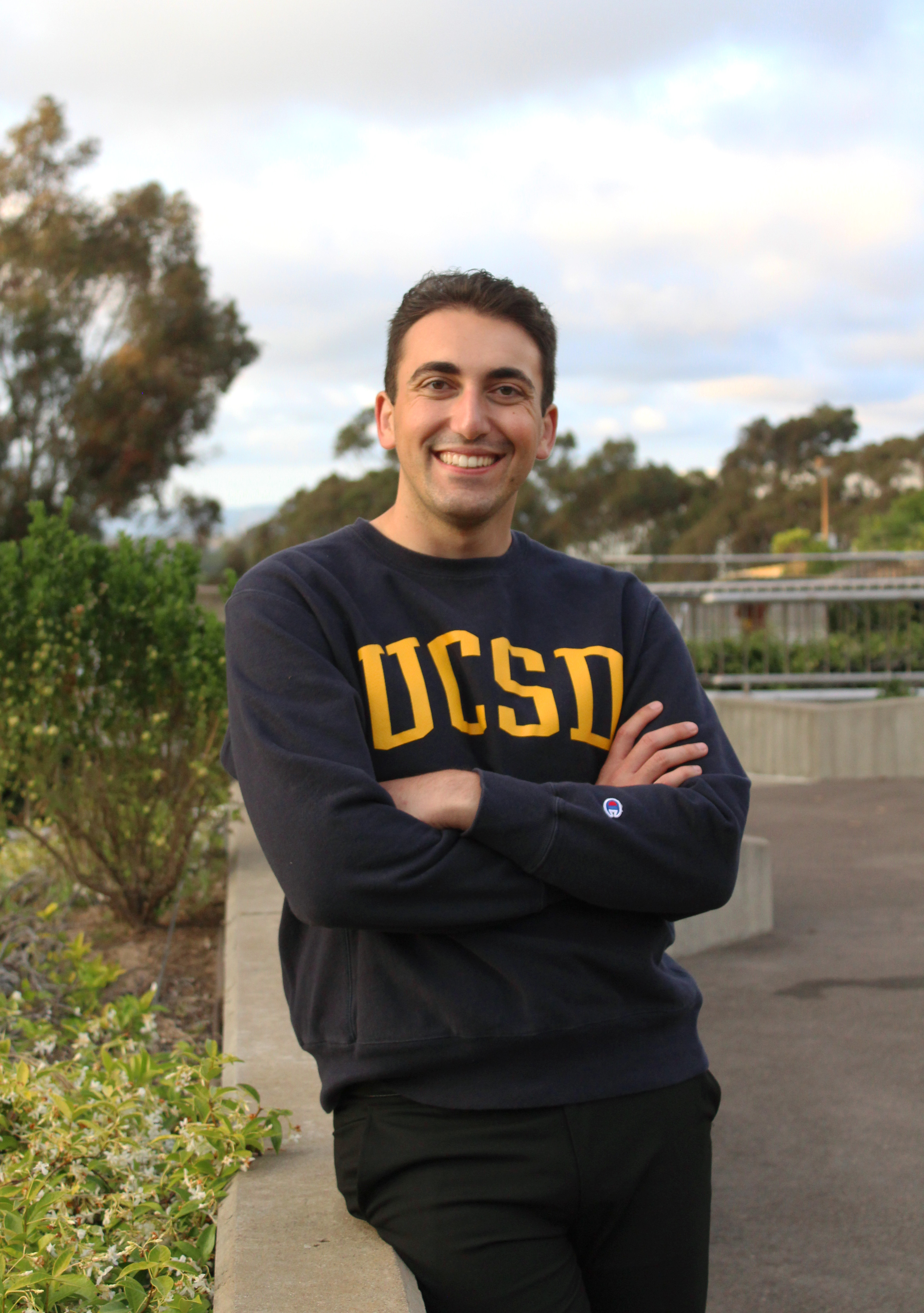
Undergraduate Major: UC San Diego B.S. in Human Biology; Minor in Global Health
Global Health Interests: Healthcare Accessibility/Equity, Disease Epidemiology, Health Policy, Addressing Healthcare Disparities
Global Health Field Experiences: Resident Assistant at UCSD, Lead UCSD SFL Peer EDI Ambassador, Intern at Palomar Health, Intern at Health Frontiers in Tijuana (HFiT), Intern at Salk Institute, TRELS Scholar
Career Aspirations: Aspiring Physician & Global Health Researcher
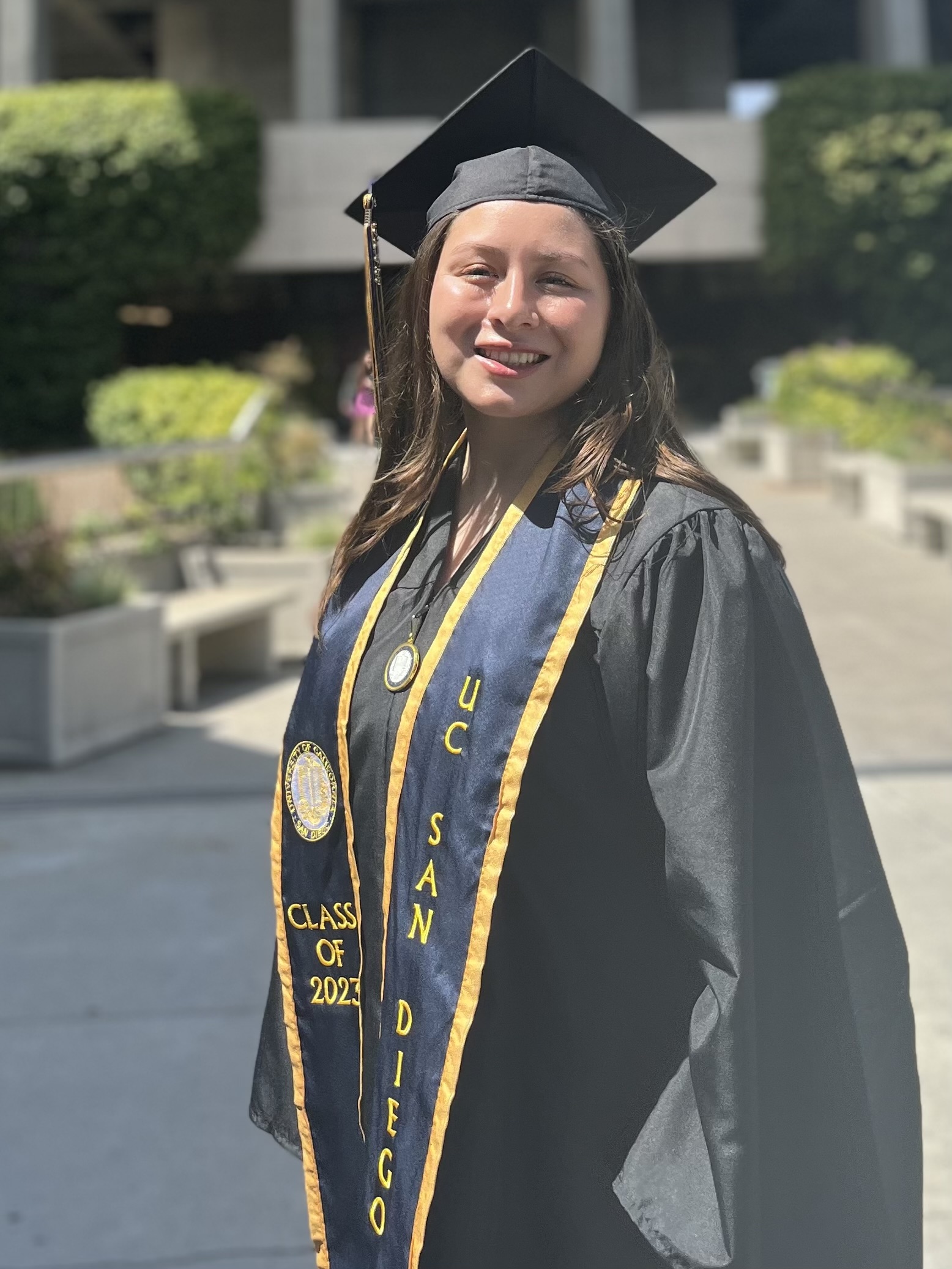
Undergraduate Major: UC San Diego B.S. in Global Health, and B.S. in Education Sciences
Global Health Interests: Implementation of Health Policy and Management, Infectious diseases, Health Disparity
Global Health Field Experiences: Health Frontiers in Tijuana Intern Summer 2022/Spring 2023, Partners In Health Engage at UC San Diego
Career Aspirations: CDC Public Health Analyst, LB Health Department Community Program Specialist, LA County Community Health Worker
Undergraduate Major: UC San Diego B.A. Global Health
Global Health Interests: Creating inclusive non-binary sexual health education and advocacy programs, Decolonizing research and language in global health, Mental health outreach and awareness for the LGBTQIA+ community, Research on substance abuse, alcoholism and twelve step programs. Health equity, reproductive rights, social justice and health care for all.
Global Health Field Experiences: Participated in UC San Diego summer program, Health Frontiers in Tijuana as a medical volunteer. Participated in the JFS Migrant Shelter Volunteer Program as a medical health screener administering Covid-19 test. Participated in UC San Diego Global Health Horizons Honors Thesis Program.
Career Aspirations: Researcher in global health as a practicing physician who works to educate others on non-binary sexual health and education by creating programs designed to reach all individuals. My focus population will be on marginalized communities such as the LGBTQIA+ and BIPOC communities.
Undergraduate Major: UC San Diego B.S. in Cognitive Science with a Specialization in the Clinical Aspects of Cognition, B.A in Global Health
Global Health Interests: Health Diplomacy, Health Policy, Clinical Epidemiology
Global Health Field Experiences: UC San Diego Health Infection Control/Clinical Epidemiology volunteer, UCSD Global Health Horizons Honors Thesis
Career Aspirations: Health program manager for a government agency or NGO, Foreign Service

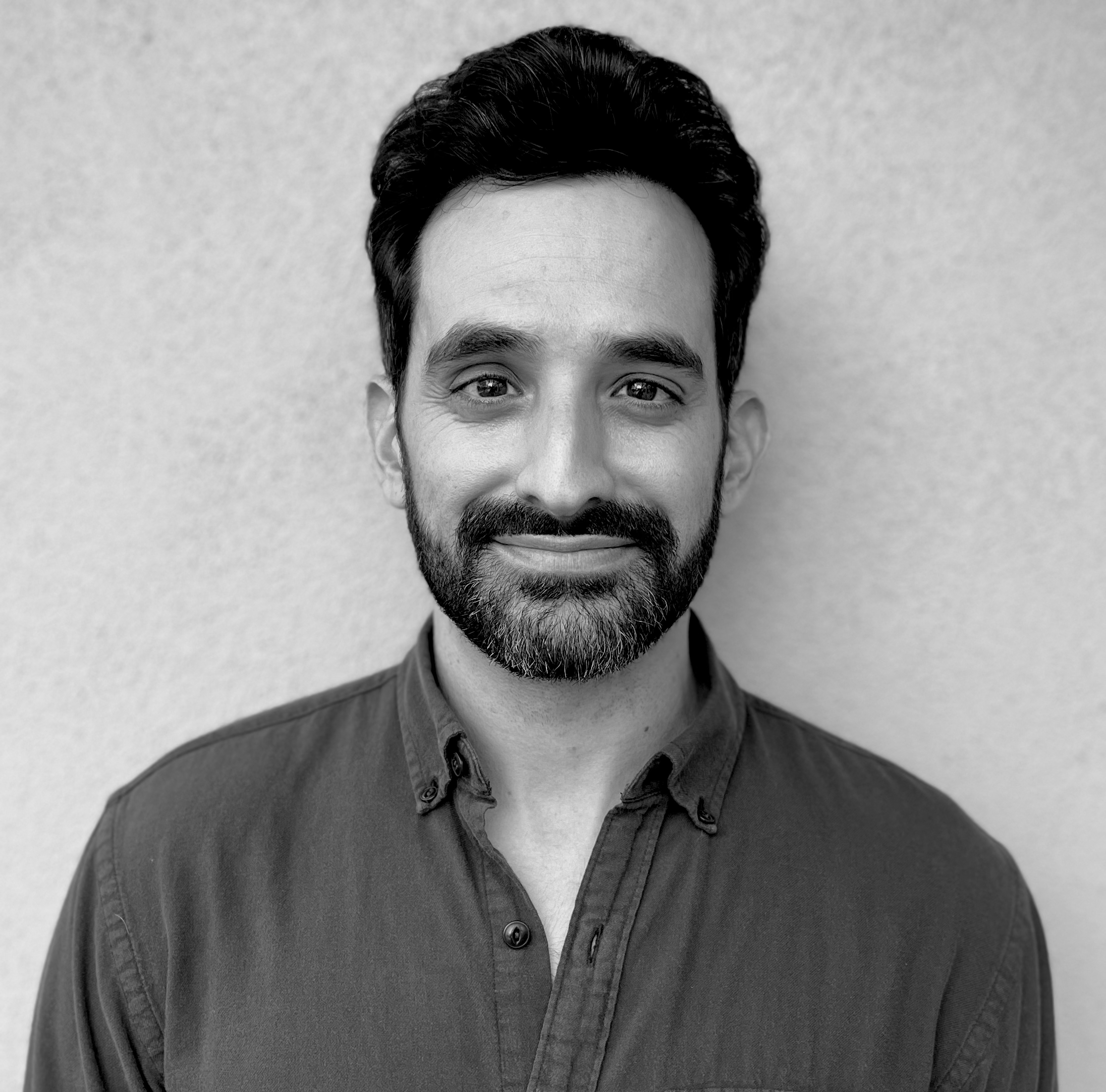
Undergraduate Major: UC Santa Cruz B.A. in Psychobiology
Global Health Interests: Deconstructing Colonialism in Healthcare, Housing and Healthcare, Healthcare Education, Exploring paradigms of faith and authority in medical science.
Global Health Field Experiences: San Diego Habitat for Humanity Construction Volunteer, Habitat for Humanity International Mekong Big Build Construction Volunteer, Clinical Preceptorship in Ho Chi Minh City, Miramar College EMT Program
Horizons Thesis Title: “Distraction osteogenesis: An exploration of the intersection of extreme auxological elective surgery and medical tourism in pursuit of increased linear skeletal dimensions”
Abstract: Recent technological advances have resulted in a new form of extreme elective surgery named cosmetic limb lengthening (CLL). These procedures are carried out at specialized clinics in several countries and have built out a substantial online following to expand their clientele through social media outreach and advertisement. CLL involves complex invasive surgery with various risks, prolonged recovery with rehabilitation, substantial post-operative complications, and is extremely expensive with little to no insurance coverage available. Media marketing coupled with online forum activity has fed a narrative of this surgery being an option for those with the proper economic means who qualify for surgery. However, to qualify as a candidate there are significant mental health concerns being largely ignored. Such a radical procedure that requires high levels of not only financial and time investment, but also pain tolerance, is indicative of symptoms of body dysmorphia. Unfortunately, many of the most prominent clinics take a lackadaisical approach to screening clientele for this chronic condition and have taken to naming those in search of surgically altering their adult height as merely suffering from height dysphoria. This study involved a literature review of the available academic information on these procedures and their consequences. In addition systematic searches into various popular online social platforms were conducted to analyze themes of social interaction. This procedure has a documented history of complications and its growing popularity is placing patients in need of mental treatment at greater risk of peril and permanent harm. The results of this study point towards the increasing popularity of the procedure amongst young men while simultaneously indicating that awareness over the extreme risks and associated mental health issues remain low. While this procedure remains legal and available to those of adequate financial means who pass for surgical qualification, its invasive nature and high risks should raise larger societal questions about the negotiation of bodily agency and the permissibility of permanent extreme elective surgery. Further research at the academic level is warranted to explore the disturbing links between the mental health of young men and the growing prevalence of this procedure.

Undergraduate Major: Federal University of Health Sciences (Brazil) B.S. in Psychology (Emphasis in Public Mental Health)
Global Health Interests: Global Mental Health, Public Health, Gender and Sexuality Studies, LGBTQIA+ community, Sexual Health, and Health Disparities
Global Health Field Experiences: Brazilian Licensed psychologist since 2014 counseling mainly LGBTQIA+ population and Brazilians who live abroad; Volunteer Psychologist at the Brazilian Legal Advice Centre for vulnerable women and LGBTQIA+ population; Intern in the Primary Healthcare Service, Family Health Center, and Psychiatric Hospital of the Brazilian Public Health Care System; Research Assistant at the Brazilian National Secretariat for Drug Policy (project with mothers and babies exposed to crack) and at the Brazilian Maternal Hospital (project with women with postpartum depression; Master's Thesis: Experiences of bisexual women: identity politics and processes of marginalization
Career Aspirations: Intend to integrate gender and sexuality studies into Global Mental Health and work with health inequalities in Government Agencies, or international organizations.
Horizons Thesis Title: “Factors Associated with HIV Testing among Young Adult Probationers in Southern California”
Abstract: The transition period from incarceration to community reentry is a critical time when individuals face numerous challenges, including housing instability and disrupted sexual networks, increasing their risk for HIV and other STIs (Wise et al., 2019). Coping with these challenges can lead to engaging in risky behaviors, such as multiple sexual relationships, intravenous drug use, and transactional sex for drugs or money (Gordon et al., 2018). Despite being at increased risk, many individuals on probation and parole do not receive HIV testing, and some refuse testing due to concerns about stigma and discrimination (Gordon et al., 2013; Lichtenstein & Barber, 2016). However, limited research has explored the specific factors that influence HIV testing among young adult probationers enrolled in health-focused reentry programs.
The study aims to identify demographic and personal factors associated with HIV testing among young adult probationers in the UCSD RE-LINK program and explore barriers and facilitators to testing.
The study used data from the UCSD RE-LINK program's health-focused reentry coaching pilot program. The survey included questions on demographics, personal factors, and HIV testing history. Descriptive statistics and odds ratios were used to analyze the data.
The study analyzed data from 151 young adult probationers between the ages of 18 and 26 who participated in the six-month health-focused reentry program in South San Diego County. The majority of participants identified as male (79.5%), with 53% identifying as Latinx/Hispanic and 24.5% as African American/Black. Food insecurity (34%) and housing insecurity (42%) were also reported by participants.
The study found that 28% of participants reported never having received an HIV test. Odds ratio analysis revealed that females were almost 7 times more likely to have been tested for HIV compared to males (OR=6.98; IC 95%: 1.58-30.76). Young adults between the ages of 21-23 and 24-26 had almost 3 times (OR=2.90; IC 95%: 1.22-6.92) and over 6 times (OR=6.28; IC 95%: 2.35-16.77) the odds of being tested for HIV, respectively, than young adults between the ages of 18-20. Individuals who had experienced a traumatic event had over 4 times the odds of having been tested for HIV (OR=4.03; IC 95%: 1.55-10.46). In contrast, participants who had selected ""Other type of ID"" had lower odds (OR=0.21; IC 95%: 0.06-0.79) of having been tested for HIV.
The findings emphasize the need for targeted interventions to improve HIV testing rates, particularly among young adult probationers. Public health programs and policymakers can focus on implementing targeted interventions that address the identified demographic and personal factors associated with HIV testing, such as gender, age, and history of trauma. Efforts should also be made to increase access to identification documents, which may enhance testing rates.

Undergraduate Major: UC San Diego B.S. Clinical Psychology & Global Health, Minor in General Biology
Global Health Interests: Global Mental Health, Psychiatry, Decolonizing Health, Health Equity, Policy, Human Rights & Social Justice
Global Health Field Experiences: Associated Students of UC San Diego (Office of Health & Well-Being); Human Experience & Awareness Lab Undergraduate Researcher
Career Aspirations: Mental Health Innovation, Health Promotion and Mental Healthcare
Horizons Thesis Title: “Exploring the Peer Support Spectrum: A Systematic Review of Peer Support Models used at Higher Education Institutions”
Abstract: Within the last decade, the prevalence of mental illness has significantly increased, with the World Health Organization reporting that 1 in 8 people live with a mental disorder, globally. Despite the increasing prevalence of mental illness and the need for mental healthcare treatment, the mental health workforce lacks the capacity to meet the present need for care. The Peer Support model offers an innovative approach to rapidly expanding the mental healthcare workforce by integrating those with lived experience with mental illness into the economy of care for mental health patients. Peer support has been implemented to varying degrees across colleges and universities. The present study will assess the uses and limitations of common models of peer support utilized in higher education settings.
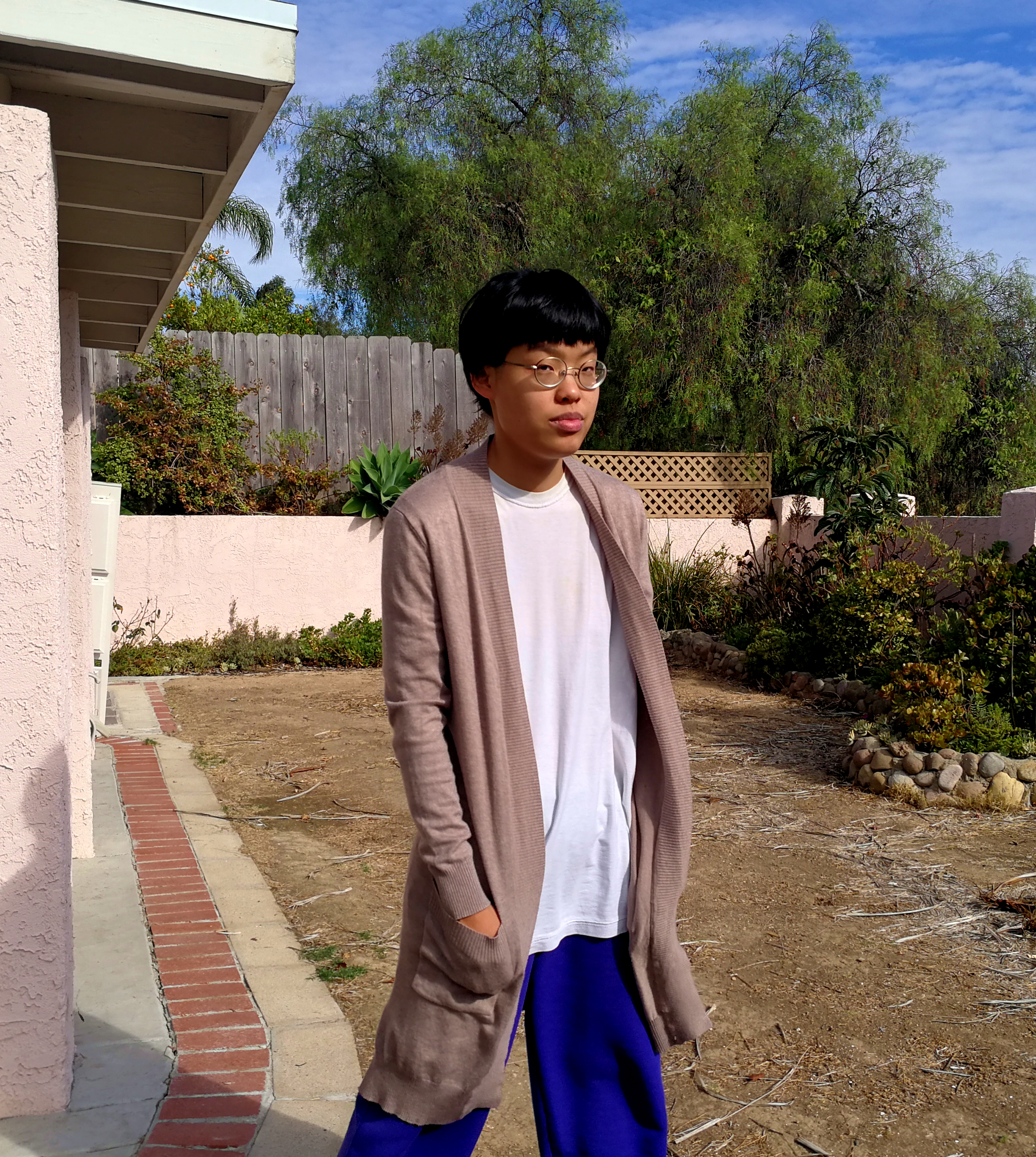
Undergraduate Major: UC San Diego Global Health Major, Asian American & Pacific Islander Studies and Cognitive Science Minors
Global Health Interests: Structural Violence, Health Equity, Nonbiomedical Medicine (e.g. Chinese Medicine), Asian Diaspora, Psychiatry, Global Mental Health, Transnational Healthcare, Politics of Care, Carceral Systems
Global Health Field Experiences: Writer and Researcher with the Asian Mental Health Project, Transcriber/Coder for the TASET (Tracing Asylum-Seeker’s Experience & Trajectories) project at UCSD, Manuscript Proofreader for Dr. Chen Yuan, CoronaNet Project Intern, UCSD All of Us Volunteer, Global Health Senior Thesis investigates mental health stigma as an important site for critical study in relation to larger projects of power and how ascribing much mental health stigma to Chinese immigrants and other Asian diasporic peoples does not straightforwardly serve to de-stigmatize them

Undergraduate Major: UC San Diego B.S. Human Biology & Global Health Minor
Global Health Interests: Trans-border Health, Immigrant Health, Nutritional Health and International Food Disparities
Global Health Field Experiences: Child Family Health International Intern in Bolivia, Health Frontiers in Tijuana interpreter and medical scribe, Founder of Expanding Visions for Health (EVH) at UCSD, SALK research Institute research assistant under Dr. Sakaguchi
Career Aspirations: Health Program coordinator fighting for food accessibility, Community Health Worker for Migrant Communities along the CA-MX Border. International Policy Researcher.
Horizons Thesis Title: “Characterizing The Socio-Cultural Barriers to Abortion in The Border Regions of Mexico: A Literature Review”
Abstract: In this Non-systematic Literature review, we aim to analyze the social, legislative, and medical barriers that make abortion such a dire health issue. We will describe the current methods of abortions available to patients in Mexican border communities, and how the current Mexican legislature may influence accessibility. Furthermore, we intend to make preliminary connections with the United States and describe the increasingly retrieve legislature surrounding such procedures. Finally, we provide future insight into the future of abortion in Mexico and what the United States can learn from having legalized abortion despite the backlash based on the philosophical ideologies of religious institutions.
The health system in Mexico is fragmented and complex leading to great diversity in abortion outcomes. Nevertheless, the recent decriminalization of abortion within the first trimester is predicted to increase the rate of abortions in Mexico slightly. In addition, the current legislation within the United States has gone in the opposite direction making abortion more inaccessible. In a new paradigm in abortion within America, the United States can learn a great deal about how abortion clinics are manufactured despite the many moral and ideological contradictions.
More research must be done to investigate the health framework of the entire country. Abortion since its specific legalization in the 1990s had paved the path possible into the current political sphere of abortion. There must be more work done in the regulation of these surveys, and the evaluation of medical professionals after such programs.

Undergraduate Major: UC San Diego Global Health Major, Health Care-Social Issues Minor
Global Health Interests: Reproductive justice, Maternal and child health, Women’s health, Health policy, Food justice, Healthcare accessibility/equity
Global Health Field Experiences: United Women of East Africa and Feeding San Diego

Undergraduate Major: UC San Diego B.S. with Majors Human Biology and Global Health
Global Health Interests: Medical Anthropology, access to and use of healthcare, quality of care, burden of disease, disparities in health insurance coverage, hospital allocation and racial disparities
Global Health Field Experiences: UC San Diego Health Volunteer Intern, Health Frontiers in Tijuana Volunteer Intern, ACES Registered Behavioral Technician (RBT)
Career Aspirations: Physician Administration, Physician Liaison, Health Program Management
Undergraduate Major: UC San Diego B.S. Global Health, B.S. Cognitive & Behavioral Neuroscience
Global Health Interests: Global Mental Health, Addressing Healthcare Disparities, Healthcare Policy Reforms
Global Health Field Experiences: Intern for Health Frontiers in Tijuana (HFiT), Board Member and Intern for Community Health Project (CHP), Clinical Assistant at UCSD Autism Center of Excellence, Geriatrics Quality Improvement Science Research Assistant for UCSD Health Group Advance Care Planning, Research Intern at UC Merced Human Computer Interaction Lab (paper published), Volunteer at UC Merced Student Accessibility Services, Founder of The Generation Bridge volunteer project, Board Member and Volunteer at COREL (COmmunity REconnecting elderly Lives)
Career Aspirations: Practicing Physician and Global Health Researcher with a focus on mental healthcare
Horizons Thesis Title: “The Prevalence of Depression Among Older Adults in Tijuana”
Abstract: This systematic review aimed to identify the risk factors for depression among the older adult population in Tijuana and identify the structural barriers that prevent the population from receiving accessible mental healthcare.
A search was conducted on Google Scholar and PubMed with the keywords including “depression”, “older adults”, “Tijuana”, “Red Light District”, “determinants”, “Zona Norte”, “Mexico”, “mental health”, and “barriers to care”. Nine peer-reviewed papers and articles published between 2000-2023 were considered. Older adults were defined as 60 years of age and above. Literature that did not identify risk factors or discuss barriers to depression care in Tijuana concerning the older adult population were excluded.
Older adult depression risk factors identified in the search include being female, having no intimate partner, low or no levels of education, lacking decision-making power in household finances, disabilities, experiencing psychosocial stress, insomnia, a decline in physical functioning, and having no support. High-risk environmental stressors that many of Tijuana’s migrants and asylum seekers experience include violence, poverty, and natural disasters. High rates of sex work, homelessness, socioeconomic deprivation, and substance usage in Tijuana’s Zona Norte are also risk factors. A lack of mental healthcare workers and/or trained professionals, poor distribution of resources nationwide, cost, and transportation are significant barriers to care in Mexico.
Research on the prevalence of depression among the older adult population in Tijuana is limited. Current literature mostly identifies risk factors for depression among structurally vulnerable populations by considering a wider age range of 18 years and above. Additionally, there is a lack of data regarding the barriers to depression care pertinent to the older adult population in Tijuana. Existing literature regarding structural barriers is generalized to Mexico and therefore does not consider the variables unique to Tijuana such as its location close to the US-Mexico border.

Undergraduate Major: UC San Diego General Biology Major, Global Health Minor
Global Health Interests: Immigrant, Refugee, and Migrant Health, Health Misinformation, Health Equity, Community Medicine, Infectious Disease Prevention and Control
Global Health Field Experiences: Asian Pacific Health Foundation Program Coordinator, Palomar Pathmaker Intern, Cell and Developmental Biology Research, UCSD Undergraduate Summer Research Scholar 2021
Career Aspirations: Aspiring Physician interested in Immigrant and Refugee Health

Undergraduate Major: UC San Diego B.S. Global Health Major & B.A. Anthropology with a Concentration in Archaeology Major, General Biology Minor
Global Health Interests: Epidemiology, Biostatistics, Infectious Disease
Global Health Field Experiences: Health Frontiers in Tijuana, Intern/ Assistant in Drug Safety & Pharmacovigilance Data Analysis and Clinical Trials Consulting
Career Aspirations: USAF Public Health Officer, CDC Epidemiologist
Horizons Thesis Title: “A Retrospective Analysis of the BMI of Patients at the HFIT Clinic in Tijuana, Mexico”
Abstract: Obesity is a global issue that disproportionately affects individuals experiencing poverty within high income countries. BMI (Body Mass Index), is the standard measure for indicating a healthy weight or an unhealthy weight, such as underweight, overweight, or obesity. Most patients at the HFIT (Health Frontiers in Tijuana) clinic consist of underserved populations, including migrants, deportees, homeless, sex workers, and other groups who experience poverty. The aims of this study are to analyze the BMI data of the patients at the HFIT clinic in order to determine if they are at higher risk for obesity compared to other populations. The methods for this retrospective analysis study consisted of analyzing BMI, sex, and age data collected from a random sample of patients whose height and weight were measured during medical evaluations at the HFIT clinic within the past year. Height and weight data was converted to BMI using the equation, kg/m². The average age of male patients in the study was 40.5 years old with an average BMI of 25.22. The mean female age was 44.1 years with an average BMI of 26.42. The age-adjusted obesity prevalence was 42.9 percent for patients aged 20-39 years and 12.5 percent for patients aged 40 or older. Within the United States, the mean BMI is about 26.5, which is classified as overweight. According to the CDC, the age-adjusted obesity prevalence amongst US adults is 39.8 percent for ages 20-39 and 44.3 percent for ages 40 to 59 years. In comparing the BMI data of the HFIT clinic to the US national average, there was a 5 percent increase in obesity prevalence amongst HFIT patients aged 20-39 years, but for ages 40 and above, there was a significant decrease in obesity prevalence.
Undergraduate Major: UC San Diego Neurobiology Major, Minors in Global Health & Psychology
Global Health Interests: Mental Health in South Asian Communities, Immigrant and Refugee Health, Women's Health, Substance Abuse, Infectious Diseases (HIV/AIDS), Medical Education, Health Policy, and Health Equity in Relation to Gender, Race, and Socioeconomic Status
Global Health Field Experiences: Health Frontiers in Tijuana Student-Run Free Clinic Intern, Palomar Healthcare Pathmaker Intern, Undergraduate Research Assistant for the Department of Neurosciences - UCSD School of Medicine, UCSD Health - Dermatology Clinical Trials Assistant, Research and Public Policy Intern for Neurocrine Biosciences, Medical Assistant at Psychiatric Clinic, Former President of Pre-Meds without Borders, Student Health Advocate for Sexual Health, Well-Being Cluster Student Adviosry Board (WCSAB) Marshall College Representative
Career Aspirations: Aspiring Physician Interested in Neurology, while working to Promote Healthcare Access and Equity through Policy and Advocation

Undergraduate Major: Miami University (Ohio) B.A. in Political Science with Minor in History
Global Health Interests: Health Policy, Global Health Diplomacy, Mental Health, LGBTQ+ Health, Global Health Inequities, and Clinical Epidemiology
Global Health Field Experiences: Service learning trip to a medically underserved area of the Dominican Republic
Career Aspirations: Aspiring physician with interests in neurology and otolaryngology. I hope to use my training at UC San Diego to inform future efforts to provide medical services in underserved communities.
Horizons Thesis Title: “Cleft Lip and Palate in Vietnam: Disparities, Surgical Care, and Future Recommendations”
Abstract: Cleft lip and palate - which can occur in isolation or co-occur - are among the more common birth defects and can have significant implications for a child’s health if left untreated or treated improperly. Surgical treatment for cleft lip and palate is complex and resource-intensive, leading to disparities in access to care for this condition in many underserved contexts worldwide, including in Vietnam. This project seeks to understand existing disparities in cleft lip and palate care in Vietnam and past efforts to address the issue, and concludes with recommendations for future efforts to address current disparities. A literature review through the academic article database PubMed was utilized to explore the issue at hand — articles were refined through a search to include results from within the last fifteen years. The extant literature indicates that a combination of genetic, environmental and social factors drives a high rate of cleft lip and palate in Vietnam, and that significant disparities in access to care for this condition currently exist in this region. Short-term, often charity and volunteer-based, medical missions have been utilized in the past in an attempt to provide surgical care for cleft lip and palate in Vietnam. This approach lacks the level of-follow up care that is needed to obtain optimal results for cleft lip and palate surgery. The literature from Vietnam, as well as literature on cleft lip and palate care in general, indicate that measures such as capacity-building efforts and the direction of funding towards this issue represent the best steps towards achieving equitable access and optimal outcomes for cleft lip and palate surgical care in Vietnam.

Undergraduate Major: UC San Diego B.S. Global Health and Biology Minor
Global Health Interests: Environmental Racism, Women's Health, Health Equity, Health Law and Policy
Global Health Field Experiences: Center on Gender Equity and Health, Health Frontiers in Tijuana (HFiT), Alzheimer's Therapeutic Research Institute, Student Ambassador with UC Global Health Institute
Career Aspirations: Working at a public interest environmental law organization
Horizons Thesis Title: “Trapped in a WASH cycle": Unsheltered individuals’ access to water, sanitation, and hygiene (WASH) and its impact on mental health and stigma”
Abstract: How does unsheltered individuals’ access to water, sanitation, and hygiene (WASH) affect their mental health and their experience with stigma?
Unsheltered individuals experience unique barriers to accessing clean water, adequate hygiene, and sanitation. Existing literature indicates WASH inequities experienced by people experiencing homelessness in the United States (Ballard et al., 2022). In addition, people experiencing homelessness have higher rates of poor mental health and substance use compared to the general population (Adams et al., 2022). However, there are gaps in research around the intersections between WASH access, drug use, mental health, and stigma experienced by unsheltered individuals (Leibler et al., 2017). Drug use may further complicate or exacerbate lack of WASH access and poor mental health. To address this research question, a literature review using key search words and phrases such as “homeless,” “unhoused,” “water, sanitation, and hygiene,” “mental health,” and “stigma” was conducted through various article databases.
The results support that unsheltered populations lack access to basic water and sanitation at significantly higher rates than those in the general urban U.S. population. The adverse impact of inhibited WASH access on the mental and emotional health of unhoused people indicates a cycle in which limited WASH access/behaviors worsens health outcomes and worsened health outcomes further limits adequate WASH access (Adams et al., 2022). Stigma experienced by unhoused individuals related to or as a result of poor WASH access can be explained by various theories linked to social norms and biases that often ignore structural issues faced by unsheltered populations.
As the rates of homelessness continue to rise in the U.S. and the threat of infectious diseases such as COVID-19 is ever present (Capone et al., 2020), the issue of WASH access among unsheltered individuals is an urgent public health and human rights issue. The results of this study can shape policy and interventions at the local and national level that recognize the health of people experiencing homelessness in a more comprehensive way. Gaining a better understanding of the mental health effects and stigma from lack of adequate WASH challenges simplified, prejudiced, and incomplete notions of homelessness, which can pave the way for more equitable and sustainable solutions to this growing crisis.
Undergraduate Major: UC San Diego Global Health B.S.
Global Health Interests: Women's Health, Maternal and Child Health, Health Disparities, Health Equity, Preventive Medicine
Global Health Field Experiences: Phlebotomist/ Lab Assistant at Scripps Health, Independent Research in Bioethics and Global Surrogacy Trade with Professor Brandt, Global Health Senior Thesis in Reproductive Injustice at the U.S.-Mexico Border
Career Aspirations: To become a Pediatrician or Family Medicine Physician. Be able to open free clinics to provide healthcare in low-income, marginalized communities
Horizons Thesis Title: “Sociocultural and Economic Drivers of Self-Medication: How Self-Prescription of Antibiotics Leads to Antimicrobial Resistance in Vietnam and India Using the One Health Approach”
Abstract: Antibiotic resistance, or antimicrobial resistance (AMR), represents a rising concern in global health that threatens one’s ability to treat and prevent common infectious diseases. Resulting from antibiotic overuse or misuse, the practice of self-medication (SM) and self-prescribing of antibiotics fuels the emergence of drug-resistant bacterial infections and further harms population health, especially in low and middle-income countries (LMICs). The aim of this literature review is to assess the prevalence of self-medicating with antibiotics in two LMICs, Vietnam and India. For this review, using the One Health Model will highlight a transdisciplinary approach to optimizing the health of all affected by AMR, including individuals, animals, and the environment. Examining both qualitative and quantitative studies, various authors discuss patterns of SM behaviors and implementation of pharmaceutical regulations in both countries; however, there must be a further examination of the drivers behind these practices. Although much of the current literature provides suggestions for regulation reforms, both Vietnam and India still face a high prevalence of AMR because of social and economic drivers in four ways: structural and communal perceptions of antibiotics as a strong, effective, and convenient alternative to visiting their providers, improper use and disposal of antibiotics, barriers to accessing appropriate healthcare, and pharmacists facing demand-side pressure from consumers. Between individual interest, economic influence, and the lack of regulation enforcement, community-based interventions are essential to reduce antibiotic use at the community and individual levels, rather than relying solely on governmental oversight. Having socially-engaged public health interventions, such as campaigns and educational materials, simultaneously engages with community values and structural beliefs and disseminates information about antibiotics and their risks. AMR is a global threat that must be addressed urgently and it will take more than regulatory oversight to control it in LMICs, such as Vietnam and India.
Undergraduate Major: UC Davis B.S. Global Disease Biology, Minors in Education & Public Health Sciences
Global Health Interests: Global and Community Health, Humanitarian Health, Immigrant Health, Health Prevention and Promotion, Program and Project Management
Global Health Field Experiences: Preventive Health and Health Services Block Grant in the Chronic Disease Control Branch at the California Department of Public Health; Sutter Health Emergency Department Scribe; American River College EMT-Paramedic Program; Bayanihan Clinic, a UC Davis Student-Run Clinic; UC Davis Filipinx Association for Health Careers; Emergency Medicine Research Associate Program - UC Davis Health; Undergraduate Researcher in the Functional Molecular Biology Lab at UC Davis
Career Aspirations: Health Program Manager in an international health organization, Government agency, or NGO overseeing the design and implementation of projects for clinics in under-resourced communities
Undergraduate Major: UC San Diego Global Health Major, Human Developmental Sciences Minor
Global Health Interests: Health and developmental outcomes of refugee and displaced youth, preventative care and holistic health, health equity, human rights and social justice
Global Health Field Experiences: SD Refugee Tutor at Ibarra Elementary and after school aid and food drive volunteer with Metro Villas Community Center serving underprivileged/refugee youth in the City Heights East-African community. Conducted Global Health Senior Thesis
Career Aspirations: Working in the WHO or UNICEF to promote health equity and intervention within still-developing communities, and in particular serve displaced and refugee youth and address their negative health outcomes
Undergraduate Major: UC San Diego B.S. Global Heath Major
Global Health Interests: Cardiovascular Health, Preventative Medicine, Health in Bangladesh
Global Health Field Experiences: Research assistant with Dr. Paula Saravia studying the intricate relationship between environmental precarity and mental health.
Undergraduate Major: UC San Diego Global Health Major
Global Health Interests: Immigrant and Refugee Health, Infectious Diseases
Global Health Field Experiences: World Health Organization, Eastern Mediterranean Regional Office - Health Systems Development
MA Thesis Title: "Association Between Acculturation/Acculturative Stress and Healthcare Seeking Behaviors of Iraqi Refugees"
Committee:
Abstract: The current refugee crisis is the most pressing global challenge, threatening the safety, wellbeing, and quality of life of 80 million forcibly displaced individuals. Refugees’ experiences of pre-and post-migration trauma, post-migratory stressors, the additional burden of resettling in a new country, and a history of mental illness make the acculturation process of refugees unimaginably difficult and taxing, both mentally and physically. There is a lack of research exploring acculturative stress as a barrier to seeking healthcare. Participants in this study consisted of 213 Iraqi refugee women resettled in San Diego, California. The Social, Attitudinal, Familial, and Environmental Acculturative Stress (SAFE) scale was used to assess acculturative stress in the sample. Healthcare access, history of mental illness, and demographic information were also collected. Statistical analyses included analysis of variances (ANOVAs), Tukey post-hoc pairwise testing, t-test procedures, and chi-square tests of independence to determine the association between acculturative stress and healthcare access. A Directed Acyclic Graph (DAG) was constructed to represent the focal relationship and confounding variables. Quantitative analysis indicated higher levels of acculturative stress were associated with lower levels of education, increased financial strain, history of mental illness, and seeking mental health care. Predictors of acculturative stress, specifically increased financial strain and history of mental health, were also significantly associated with putting off, postponing, or not seeking medical care. Furthermore, those with higher levels of education were more likely to be dissatisfied with the U.S healthcare system and prefer receiving treatment from healthcare providers of the same race or ethnicity. The results of this study highlight the barriers to accessing healthcare services refugees face upon resettlement. An understanding of these barriers will help with targeted interventions to ensure the health and wellbeing of refugees. Future research should examine qualitative reasons why refugees postpone care.
Undergraduate Major: UC San Diego B.S. Global Health Major & B.S. Biochemistry and Cell Biology Majors
Global Health Interests: Infectious Diseases (Tuberculosis), Syndemics, Preventative Medicine, Global Mental Health, Health Education
Global Health Field Experiences: Health Frontiers in Tijuana Intern, Health Frontiers in Tijuana Coordinator, Pathmaker Intern at Palomar Health, Psychiatric Medical Scribe with Senior Medical Associates (at Palomar Health)
Career Aspirations: Primary Care Physician and Global Health Researcher

Undergraduate Major: UC San Diego B.S. Psychology with a Specialization in Clinical Psychology & B.A. Global Health Majors
Global Health Interests: Efficacy of mental health treatment including 30-day SUD programs, Global Mental Health, Cultural competency in healthcare treatment
Global Health Field Experiences: Crisis Text Line Counseling, HFiT, Behavioral Health Technician in Substance Use Disorder Eating Disorders, and Schizophrenia/Schizoaffective Disorders
Career Aspirations: Earn a doctorate in Clinical/Counseling Psychology and work as a Psychologist with adult patients
MA Thesis Title: “Barriers and facilitators to substance use treatment engagement for the heroin-based drug Whoonga: Qualitative evidence from South Africa”
Committee:
Abstract: Whoonga is a smoked, heroin-based street drug in South Africa. Also known as nyaope, its use poses a significant health and public safety problem for South African communities. Prior studies have shown that opioid-related treatment admissions have increased, but nothing is known about barriers and facilitators to treatment access. In 2015, semi-structured interviews were conducted with 30 men with smoked heroin use undergoing residential substance use treatment. In 2017, an additional 10 men and women with smoked heroin use were recruited from the social networks of participants in residential substance use treatment. Participants were interviewed about their experience with the drug and in accessing substance use treatment. Interview data were coded using qualitative content analysis. Barriers to treatment were stigma, addiction, and availability. Methadone was a facilitator to treatment maintenance. A supportive family helped to overcome barriers of stigma and availability, but many participants had experienced times in their life when they were alienated from their families. Participant experiences did not appear to differ based on race/ethnicity. There were a variety of social, structural, and biological forces that served as barriers and facilitators to substance use treatment. Further research evaluating methadone maintenance outcomes and treatment availability is needed. Familial and social relationships were highlighted as motivators for substance use treatment maintenance. Interventions addressing the social and biological forces of addiction will be needed to promote substance use treatment engagement.
Undergraduate Major: UC San Diego Global Health Major, General Biology & Psychology Minors
Global Health Interests: Health Equity, Medical Education, Infectious Diseases (HIV/AIDS), LGBTQIA+ Health, Health Access, and Racial Health Disparities
Global Health Field Experiences: Fellowship at Szent János Hospital (Budapest, Hungary), Internship at Scripps Whittier Diabetes Institute (La Jolla, California)
Career Aspirations: Attend and graduate from an Osteopathic Medical School and become involved with HIV/AIDS research. Once in practice, work towards becoming a Physician advocating Infectious Disease Control and Global Public Health
MA Thesis Title: “Making the Invisible Visible: Skin Cancer Obfuscation in South Africa”
Committee:
Abstract: Skin cancers, among the most common cancers worldwide, have rapidly increased over the last fifty years, contributing to the overall global burden of disease. In the Republic of South Africa, skin cancer rates have skyrocketed, but little to no interventions have been put in place to promote the detection of this relatively neglected disease category. Currently, there is no global consensus on how to institute the screening of skin cancers, which is further complicated by the lack of awareness on diagnosing skin cancer among darker skinned populations. Differences in skin pigmentation affect how patients inflicted with malignancies, such as Kaposi’s sarcoma, Merkel cell carcinoma, and melanoma are diagnosed. The resources for skin cancer surveillance on a global level rely on three main mechanisms: the Global Initiative for Cancer Registry. Development, the Skin Cancer Foundation, and AIM at Melanoma. While these initiatives work to educate the public on the importance of skin cancer prevention, these organizations lack the necessary tools to expand healthcare resources in skin cancer surveillance. This thesis examines how skin cancer has been rendered as invisible in South Africa at three different levels: the impact of skin cancer on the body, within national public health infrastructures, and global policies put in place for the surveillance and monitoring for this disease. Broadening options for prevention and treatment for skin cancer among more diverse populations than those currently reflected in dermatology textbooks needs to be implemented for further education and screening purposes.

Undergraduate Major: UC San Diego Global Health Major
Global Health Interests: Cancer Disparities, Healthy Aging, Gerontology
Global Health Field Experiences: National Cancer Institute Youth Enjoy Science Scholar, Health Frontiers in Tijuana Intern, API Cancer Outreach Team, Life Course Scholar
MA Thesis Title: "Vaccine Development in the Age of Fake News: A Qualitative Content Analysis of Misinformation on the Pediatric COVID-19 Vaccine by Verified Minority Twitter Users"
Committee:
Abstract: False, unvetted, and misleading information about COVID-19 is regarded as a major threat to public health and vaccine confidence. Prior studies have identified Twitter as a major channel of COVID-19 misinformation. Little research has been done on the sentiments of minority communities on Twitter. Tweets were collected from the Twitter API using keywords related to the COVID-19 pediatric vaccine. From which, the 200 most retweeted tweets were subjected to manual content classification to identify tweets with explicit vaccine misinformation that are authored by Twitter-verified minority users. Direct replies to these tweets were also collected for qualitative content classification. A total of 863,007 tweets were collected. Four misinformation-labeled tweets were authored by Twitter-verified minority users within the Top 200. Themes identified were “vaccine development conspiracy,” “vaccine is experimental,” and “vaccine is a control tactic”. 156 relevant replies were examined. 72% agreed with the misinformation presented. Common among replies were concerns for child safety, calls for resistance, and further discussions of conspiracy theories. The results of this study provide insight into online sentiments surrounding the COVID-19 pediatric vaccine and, specifically, organic user reactions to explicit vaccine misinformation by Twitter-verified minority users. Further research is needed to understand how dissemination of misinformation occurs within marginalized communities, and by members of marginalized communities.

Undergraduate Major: UC San Diego Global Health Major
Global Health Interests: Women's Health, Maternal and Child Health, Climate Change
Global Health Field Experiences: FAIR Girls Anti-Trafficking Intern, International Rescue Committee Case Management Intern, SMART 2.0 Research Assistant at UCSD, FIMRC Global Health Fellow, Global Health Senior Thesis
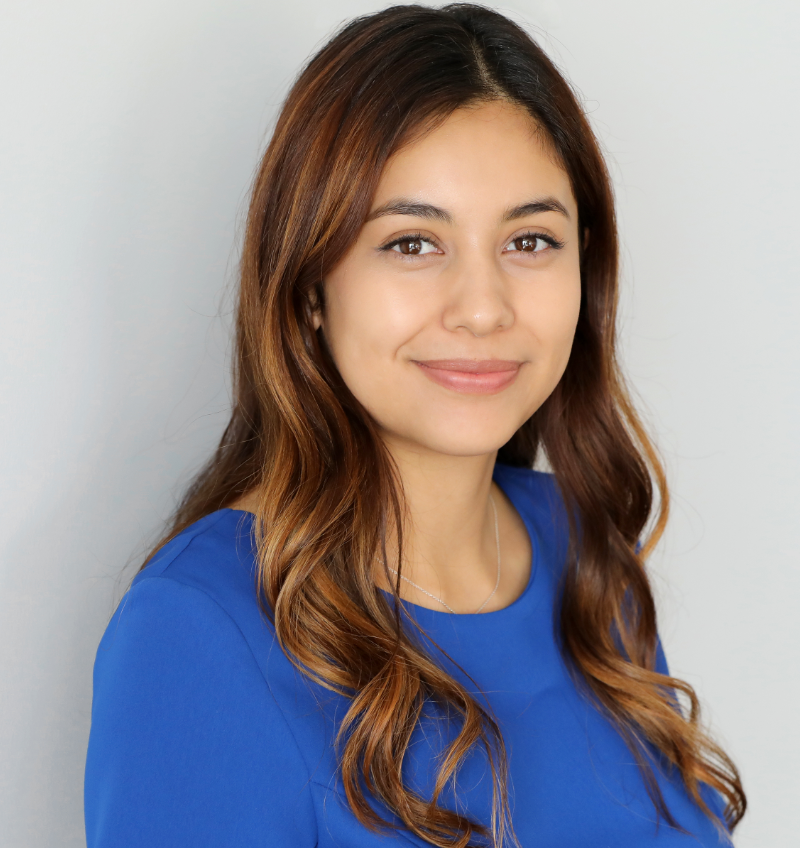
Undergraduate Major: California State University, Los Angeles Anthropology Major
Global Health Interests: Gender and Identity in Health and Disease Discourse, Medical Anthropology, Health Policy, Health Equity, Acculturation and Health, Human Rights and Social Justice
Global Health Field Experiences: Health Career Connection Intern with the Government Relations Department at AltaMed Health Services Corporation (Los Angeles County & Orange County)
Career Aspirations: Health Program Manager/Director, Advocacy and Policy

Undergraduate Major: UC San Diego B.S. Global Health, Philosophy Minor
Global Health Interests: Women's Health, Low Income/Underserved Healthcare, Traditional & Indigenous Healing, Preventative Medicine
Global Health Field Experiences: Healing Hearts Across Borders Volunteer, Health Frontiers in Tijuana Intern
Career Aspirations: Physician promoting Healthcare Access and the use of Complementary Medicine in Biomedical Practice

Undergraduate Major: UC San Diego Biological Anthropology Major, Global Health Minor
Global Health Interests: Border healthcare, Substance abuse, Medicine, HIV/AIDS.
Global Health Field Experiences: Health Frontiers in Tijuana (HFiT) intern, Secretary and founder of Medical Wonders Club at UCSD, Corri La Vita volunteer (Florence, Italy), Stanford School of Medicine medical scribe, Alzheimers Certified Nurse Assistant
Career Aspirations: Physician Assistant

Undergraduate Major: UC San Diego Political Science - American Politics & Global Health Majors
Global Health Interests: Militarism and Health, Global Health Policy, Politics of Health and Medicine
Global Health Field Experiences: UCSD Faculty Mentor Program, Global Health Senior Thesis
Career Aspirations: Global Health Policy Advisor, Non-Profit Manager

Undergraduate Major: UC San Diego Global Health Major, General Biology Minor
Global Health Interests: Health Misinformation, Maternal/Child Health, Health Equity
Global Health Field Experiences: Asian Pacific Health Foundation Program Coordinator, Research Assistant for Kipps Lab at the Center for Novel Therapeutics, UCGHI Student Ambassador for Planetary Health Center of Expertise, Undergraduate Honors Thesis on Targeting Vaccine Hesitancy on Social Media
Career Aspirations: Physician and Global Health Researcher

Undergraduate Major: UC San Diego Bachelors in Global Health; Southwestern College AA with Honors in Psychology; Southwestern College ADT with Honors in Psychology
Global Health Interests: Medicine and health equity in relation to gender, race, and socioeconomic status, implementation and dissemination science
Global Health Field Experiences: Child Family Health International pediatric surgery volunteer, research program manager for a WaSH systematic review in relation to women’s health, second author for a WaSH research study on water system functionality, American Heart Association Youth Market intern, UCSD Health Frontiers in Tijuana free clinic intern, Sharp Emergency Department Technician, Global Health Program Management of Health Services guest speaker
Career Aspirations: Practicing Physician working in the Global Health Sector such as with Minority and Women’s Health Programs
MA Thesis Title: "Examining the Determinants of COVID-19 Childhood Vaccination Decisions: the Role of Protective Behaviors Adherence and Burnout"
Committee:
Abstract: This mixed-methods study investigates associations between the COVID-19 pandemic, emotional health, and physical health to understand what factors mediate the relationship between burnout and adherence to protective behaviors. Qualitative analysis utilized 15 semi-structured focus group discussions of school staff (n= 22) and parents (n= 20) conducted between December 2020 and March 2021 in English and Spanish within San Diego County. Quantitative analysis utilized a cross-sectional survey administered in 2 waves (February and March, 2022) of parents’ pandemic experiences (n= 541) conducted in English (n= 382) and Spanish (n= 159). The study population was participants from school sites partnered with Safer at School Early Alert (SASEA) and located in zip codes of high social vulnerability according to the California Healthy Places Index. Qualitative analysis revealed themes such as mental distress, fear regarding learning loss, concern for physical and emotional well-being of children, misinformation and miscommunication, economic uncertainty, and perceptions of structural barriers as important for protective decision-making. Two models were created for the main outcomes of interest in the quantitative data, vaccination of children and parent mental health. Variables significantly associated with vaccination uptake of children included perceived risks, vaccination status of parent, flu vaccination willingness, child age, masking behaviors, and family income. Variables significantly associated with parental burnout included child’s mental health, housing instability, identification of misinformation, child masking behaviors, and income. Facilitators and barriers for vaccination uptake of children were also analyzed and disaggregated among each survey wave, and by language (English and Spanish). This study confirms key mediating variables in vaccination uptake of children and parental burnout associations with protective behaviors, highlighting the importance of adjusting promotion strategies accordingly to boost vaccination uptake and bolster mental health responses.
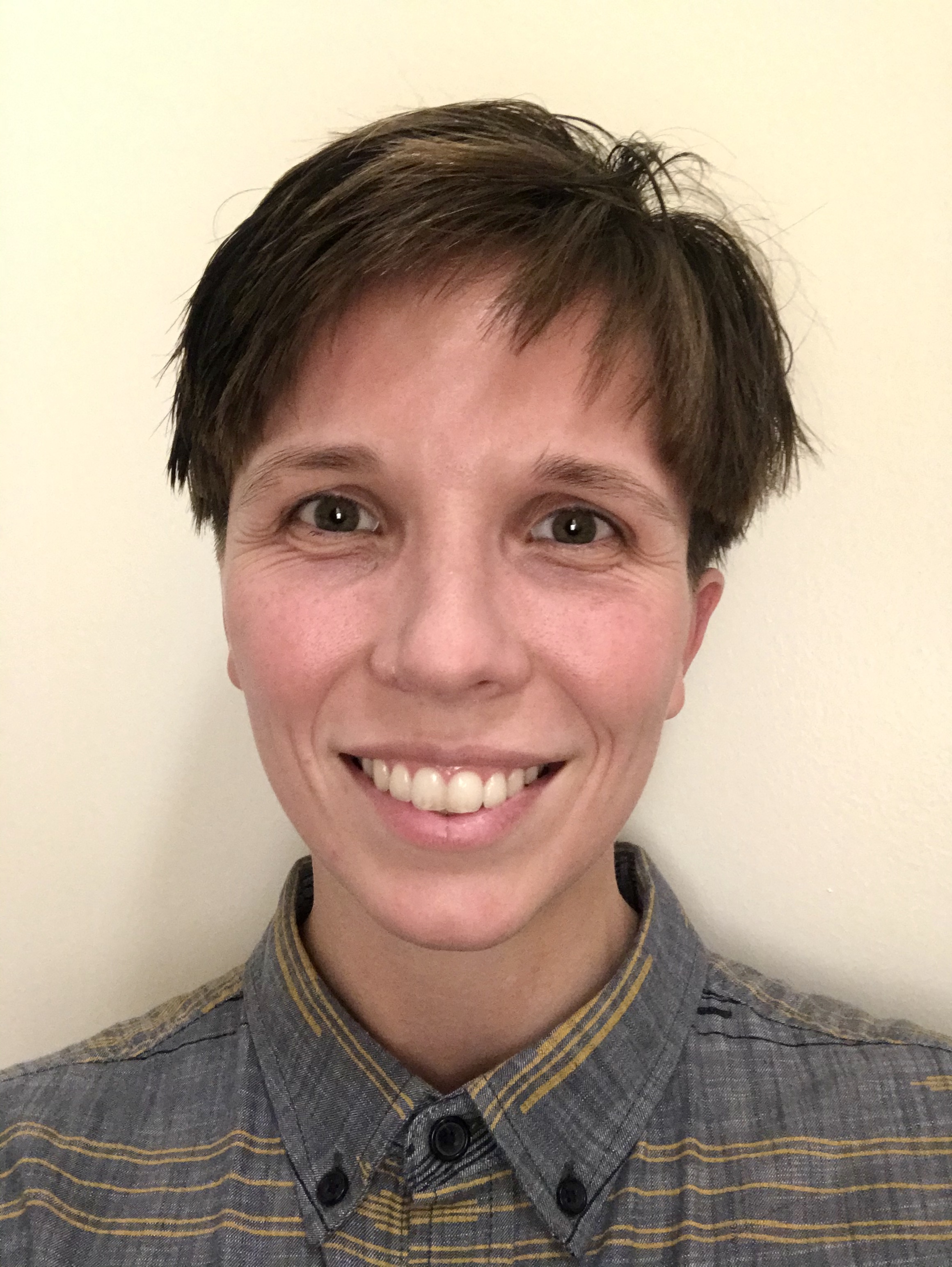
Undergraduate Major: Reed College Anthropology Major
Global Health Interests: Vaccine Hesitancy, Health Misinformation, Maternal Health, Mental Health, Autism Spectrum Disorder
Global Health Field Experiences: Volunteer Doula with UCSD Hearts & Hands Behavior Therapist, Family Guidance and Therapy Center
Career Aspirations: Medical Anthropology
Undergraduate Major: UC San Diego Physiology & Neuroscience Major, Global Health and Literature/Writing Minors
Global Health Interests: Health Equity, Structural Violence, Border & Transnational Healthcare, Ethnography, Psychiatry & Mental Health, Narrative Medicine, and Decolonizing Medicine
Global Health Field Experiences: Coordinator for HFiT (Health Frontiers in Tijuana) Student-run Free Clinic, Undergraduate Research Assistant for Hnasko Lab (Department of Neurosciences, UCSD SOM), Healing Hearts Across Borders Volunteer, Joy De La Cruz Art & Activism Intern at UCSD Cross-Cultural Center
Undergraduate Major: UC San Diego Human Biology Major, Global Health Minor
Global Health Interests: Health of Low-Income Communities, Maternal/Child Health, and Refugee Health
Global Health Field Experiences: Basic Needs Assistant at UCSD The Hub Basic Needs Center, Student Observer for the UC Regents Special Committee on Basic Needs

Undergraduate Major: UC San Diego Human Biology Major, Global Health Minor
Global Health Interests: Health of Low-Income Communities, Maternal/Child Health, and Refugee Health, Medical Anthropology, Social Epidemiology, Community Medicine
Global Health Field Experiences: Basic Needs Assistant at UCSD The Hub Basic Needs Center, Student Observer for the UC Regents Special Committee on Basic Needs, Doctors Without Border, Medical Scribe, Red Cross
Career Aspirations: Orthopedic Surgeon

Undergraduate Major: UC San Diego B.S. Global Health Major
Global Health Interests: Medical Education, Community-Driven Improvements, Perception, Engagement, & Effects of Health Care, Medicine, Medical Policies, and Wellbeing; Integrative Healthcare; International Biomedical Ethics & Relations
Global Health Field Experiences: Research Assistant for Institute of Pediatric Regenerative Medicine, UC Davis School of Medicine, & Salk Institute for Biological Studies, Site Leader for Alternative Breaks International Service-Learning for Healthcare & Environmental Sustainability, Palomar Healthcare Pathmaker Intern, Secretary for American Mock World Health Organization, Volunteer EMT for Cosumnes Fire Department, Emergency Department Technician for Sutter Hospital, Volunteer Medical Assistant for UC Davis Medical Center, Outpatient Clinic for Shriner's Hospital for Children- NorCal, Assistant for Mass Casualty Relief Preparation Program, Advocate for Mental Health Services in California Community Colleges, Student with Health Frontiers in Tijuana Student-run Free Clinic, Presenter for UC San Diego Health System Morbidity and Mortality Grand Rounds Conferences
MA Thesis Title: "For and by Communities: An Assessment of Feasibility for a Novel International Healthcare Program in Rural Ghana and Nigeria"
Committee:Abstract: Residues of Global Health’s origins in tropical and colonial medicine remain central in the framework of international medical outreach—trips in which students and practitioners arrive in other countries to impose health aid. In hopes to redirect such aid in a manner that also builds community autonomy, twenty-six partnering communities across rural Ghana and Nigeria developed a novel healthcare system proposal that impresses community voice as imperative while collaboratively working with international volunteers. This thesis seeks to exemplify this framework of community-driven efforts by working at the request of these communities to investigate the legal frameworks and technological precedents salient to the implementation of their program proposal. A grey literature review of legal documents from Ghana, Nigeria, and the United States, as well as a review international codes and technologies, finds that the proposed program is both feasible and supported by the current infrastructures related to all healthcare governances. While further steps are required to initiate the proposed program, the example it leaves is one towards a community-driven framework.

Undergraduate Major: UC San Diego UCSD Third World Studies Major
Global Health Interests: Immigrant Health
Global Health Field Experiences: Intern at the Health Frontiers in Tijuana clinic
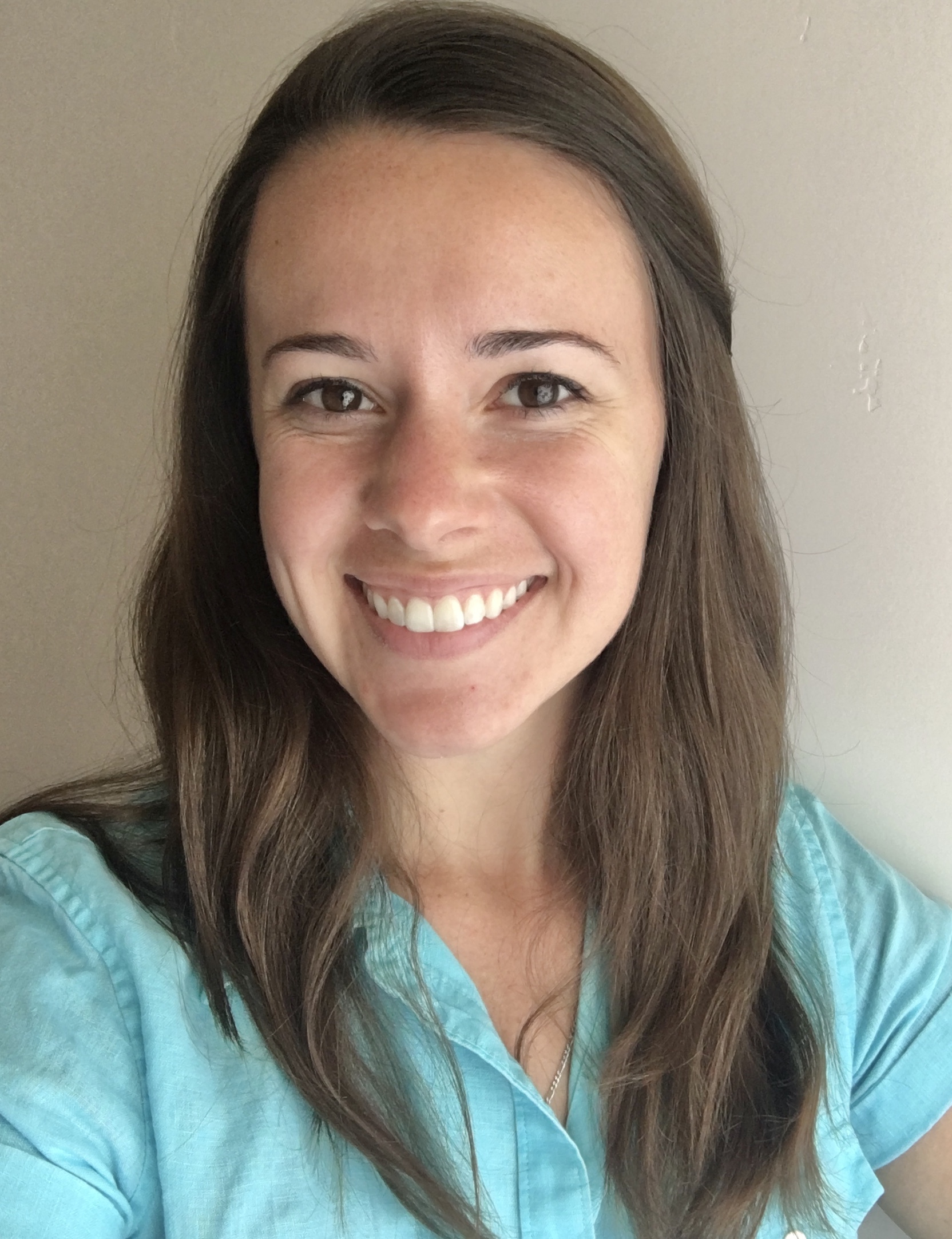
Undergraduate Major: United States Naval Academy Chemistry Major, The Johns Hopkins University School of Medicine Medical Doctorate
Global Health Interests: Pediatric Surgery, Global Surgery
Global Health Field Experiences: Research Experience
Career Aspirations: Continuing to contribute to research in the field of global health, global surgery, and health care disparities. Serve as a leader within the U.S. Military for humanitarian aid, disaster relief, and international partnership-building operations. Work with the U.S. Military and NGOs to improve global surgery and universal access to surgical care.
MA Thesis Title: “Pediatric Trauma in the California-Mexico Border Region: Injury Disparities by Area Deprivation Index”
Committee:Undergraduate Major: UC San Diego Human Biology Major, Global Health Minor
Global Health Interests: Reproductive and Maternal Health, Empowering Communities through Health Education, Racial Health Disparities, Health Equity
Global Health Field Experiences: Student Health Advocate, Director of the Community Health Worker Program for the International Health Collective, Medical Interpreter for the UCSD Student-Run Free Clinic Project, Youth Refugee Mentor for the International Rescue Committee
Career Aspirations: Aspiring Physician interested in Reproductive and Maternal Health

Undergraduate Major: UC San Diego Human Biology Major
Global Health Interests: Geriatric Health, Infectious Disease Prevention and Control, Health Education
Global Health Field Experiences: Clinical Psychology Research Intern, Biomedical Research Assistant, Alzheimer's San Diego Volunteer, Life Course Scholar
MA Thesis Title: "Osteoarthritis in Asia: A Literature Review"
Committee:Abstract: Osteoarthritis (OA), an age-related disease of the joint characterized by progressive cartilage degradation and chronic pain, is a leading contributor to disability. The prevalence of OA is increasing worldwide with global population ageing. The rise in OA prevalence is especially concerning for many Southeast and East Asian countries with unprecedentedly rapid population aging. This literature review aims to explore the OA prevalence and risk factors, the OA lived experience, and the OA situation in Vietnam and Japan in the Southeast and East Asian regions. Knee and hand OA are highly prevalent in Southeast and East Asia, and are associated with diverse biological, behavioral, and social factors such as age, sex, body mass index, occupation and educational level, and sociocultural activities. The OA lived experience is highly variable and characterized by limited knowledge of OA and OA management; pain and disability impact physical, sociocultural, and psychological health; and self-management of OA. Finally, a closer look at the OA situation in Vietnam and Japan revealed more challenges for OA management in Vietnam, and most challenges lie in the Vietnamese healthcare system. Learning from Japan, we recommend that Vietnam consider implementing a long-term care insurance system to support OA patients with disability, in addition to promoting public awareness of the OA and OA prevention/ management.

Undergraduate Major: UC San Diego Global Health Major
Global Health Interests: Women's Reproductive Health, Immigrant & Refugee Health, Mental Health, Health Policy, Global Health Program Design & Evaluation
Global Health Field Experiences: Research Assistant at UCSD Moores Cancer Center with the Adolescent and Young Adult Survivorship Care Study, Relay Committee Member for Colleges against Cancer, Research Assistant for UCSD's Center for Global Mental Health
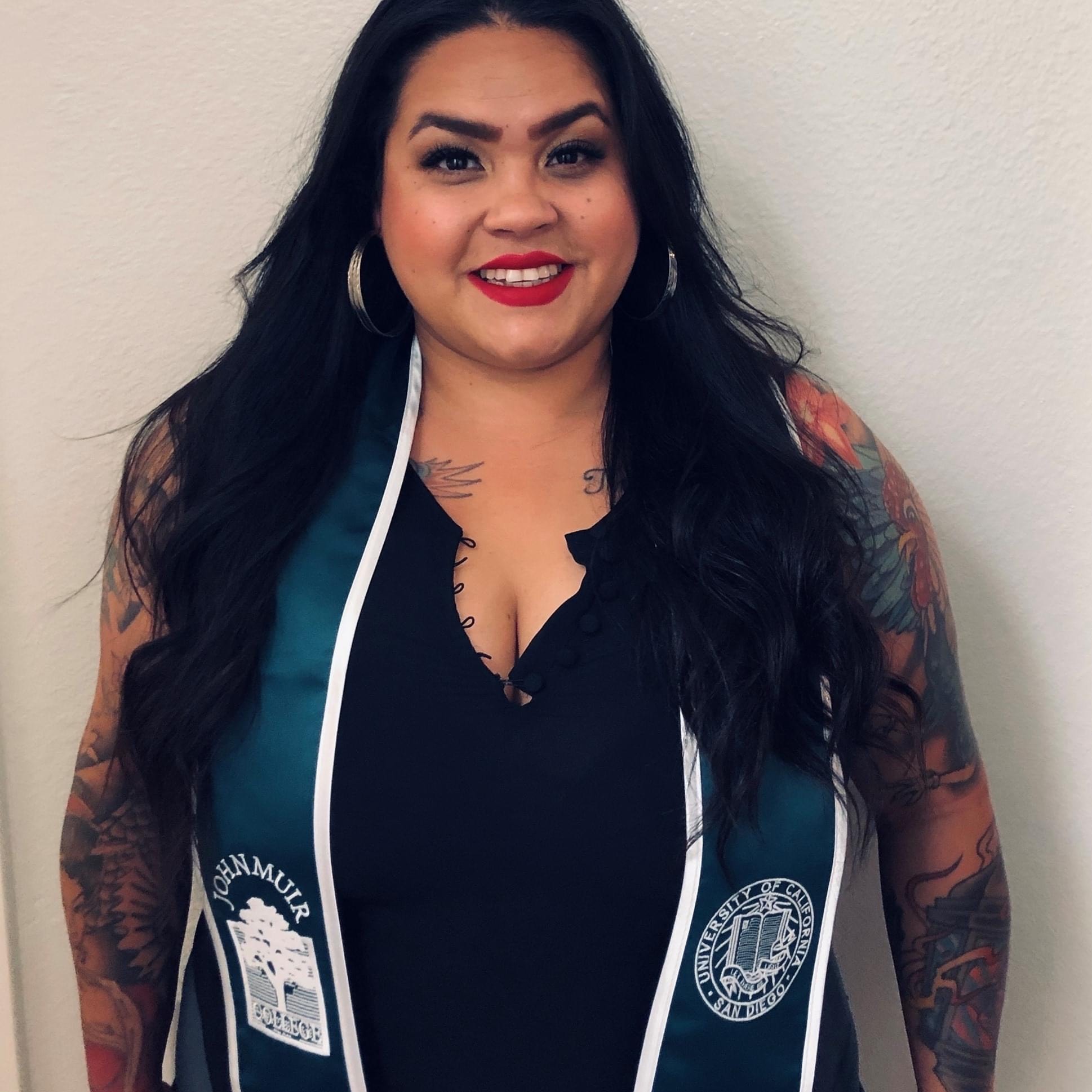
Undergraduate Major: Citrus Community College Biological Science & Social and Behavioral Science Major, UC San Diego Global Health & Sociocultural Anthropology Major
Global Health Interests: Migrant and Immigrant Health
Global Health Field Experiences: Public Health Officer, Clinic Coordinator and Co-President of UC San Diego's Flying Samaritans
Career Aspirations: Community Health Worker and Advocate for the Migrant Communities along the CA-MX Border.
MA Thesis Title: "Structural Gender-Based Violence and Unresolved Trauma: Power Structures and Social Dynamics that Influence the Migration of Women Fleeing the Northern Triangle Countries of Central America"
Committee:Abstract: Guatemala, El Salvador, and Honduras, share a volatile history of fostering structural systems that sustain extreme violence against women, sanctioning the normalization of gender-based violence. Given the precarious environmental conditions of women fleeing the Northern Triangle regions, contextualization of their lived experiences as they navigate the duality of caretaker and survivor during the migration decision-making process is of the utmost importance in ensuring mental health wellness. Therefore, understanding trauma exposures during the migration journey, pre, during, and post flight periods, also known as the triple trauma paradigm, is necessitated. Through an in-depth literature review and synthesis of existing qualitative data, this thesis provides a conceptual framework to further understanding of how structural violence towards women increases their exposure to trauma throughout their lives, subsequently, increasing the probability of intergenerational trauma. Although the available literature documents migrant experiences, current research lacks an emphasis on migrant women’s experiences of structural gender-based violence, unresolved compounded trauma, and how those experiences influence their mental health outcomes. The appropriate contextualization of migrant women’s mental health encumbrances has both immediate and long-term implications on the establishment of appropriate intervention strategies explicitly tailored to the diverse mental health care needs of migrant women. As the number of women migrating to the U.S.-Mexico border region increases, it becomes increasingly critical to highlight the rising global mental health challenges they experience, which have societal and public health implications for migrant women’s life trajectories, and influence their ability to endure the challenges of transnational migration and resettlement in the U.S.

Undergraduate Major: UC Davis Chicanx Studies Major and Public Health Sciences Minor
Global Health Interests: Immigrant's Health Rights, Refugee and Asylum Seeker Health, LGBTQIA+ Health Equity, Health Equity of Migrants, Social Justice within Healthcare Policy, Healthcare Access of Marginalized and Disenfranchised Communities of Color
Global Health Field Experiences: UC Davis School of Medicine: Clinica Tepati, Blum Grant Recipient, UC Davis Knights Landing Environmental Health Project Mental Health Research Coordinator
Career Aspirations: Physician and Researcher for the Health Equity and Justice of Marginalized Communities of Color
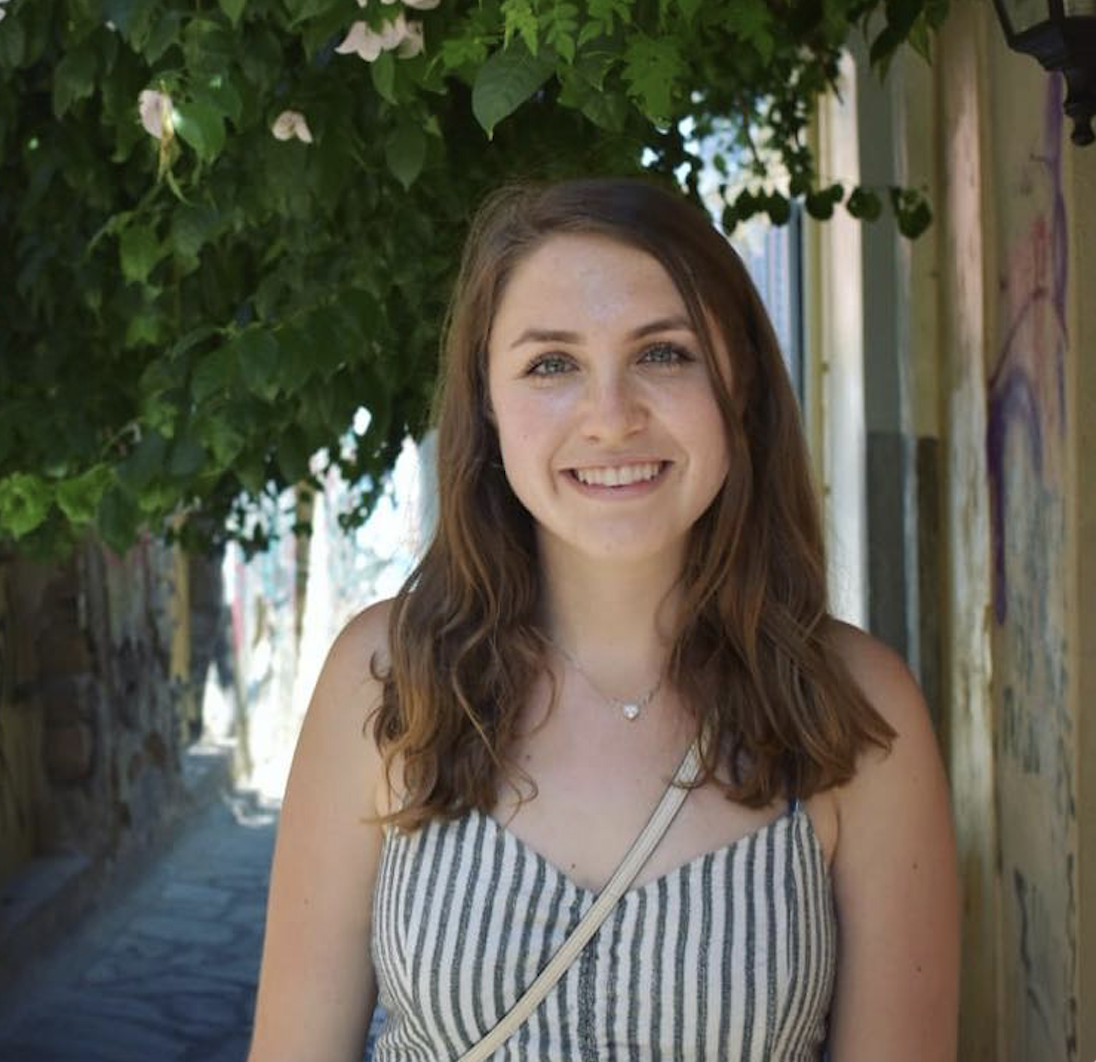
Undergraduate Major: UC San Diego General Biology and Global Health Double Major
Global Health Interests: Women's Health, Migrant Health, Health Equity Policy, Health Access
Global Health Field Experiences: Palomar Pathmaker Internship
Career Aspirations: Physician working to increase Healthcare Access and Promote Equitable Healthcare for all through Policy and Advocacy.
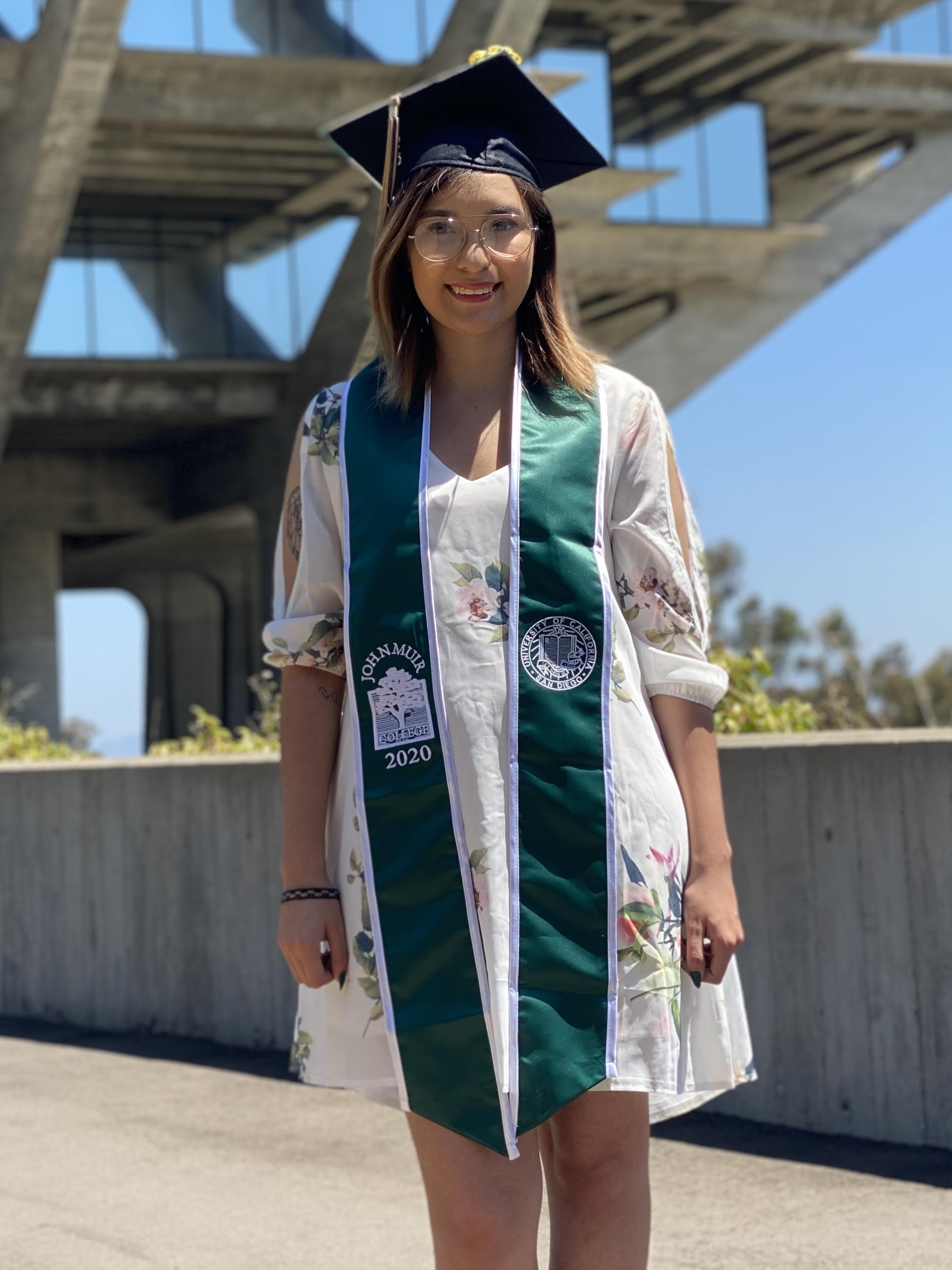
Undergraduate Major: UC San Diego Global Health Major
Global Health Interests: Infectious Diseases, Forensic Epidemiology, Women’s Health, Bioethics, Health Policies
Global Health Field Experiences: Medical Intern at the Kausay Wasi Clinic in Coya, Peru
Career Aspirations: Epidemiologist working on Clinical Trials or alongside Government Agencies to help with Health Policies

Undergraduate Major: UC San Diego Human Biology and Global Health Double Major
Global Health Interests: Medical Anthropology, Decolonizing Education
Global Health Field Experiences: Emergency Medical Technician, Flying Samaritans, UCSD Student Run Free Clinic, Undergrads4cola
Career Aspirations: Attend Medical School after finishing Masters in Global Health
MA Thesis Title: "What Medical Schools Don't Teach You"
Committee:Abstract: In response to the murder of George Flloyd, confrontation with the violence of racism in all its forms sparked protest and conversation across the country. As a student hoping to go to medical school, I watched how this discussion traveled, or did not travel, into medicine. As a future medical professional, I hoped that my professional development would include building capacity to combat the racial injustice that frequently undermines medical care. As critical race studies scholars’ have powerfully documented, mere exposure to these lessons is insufficient to create medical professionals who can transform these into their everyday clinical practices.
My project draws on the work of Linda Tuhiwau Smith, David L Brown & Rajesh Tandon, and Eve Tuck on decolonial and antiracist qualitative methodologies to highlight the urgent need to transform existing medical school curricula towards more socially and racially just frameworks. Through a literature review, medical school analysis, lecture analysis, survey, and semi-structured ethnographic interviews on students who are already engaged in equity, diversity and inclusion work in the medical school, my findings call upon the Medical School’s leadership to take further decisive actions against structural racism and anti-Black violence that plagues underrepresented communities.
This project reveals how focusing on race in the formal medical school curriculum is inadequate because so much of medical school is informally thought outside of curriculum. These aspects of the hidden curriculum are not being addressed by proposed curricular changes through programs such as PRIME. Even when the medical curriculum does address race, it does so in ways that reinforce racist ideas (race as a biological determinant of health). The lack of understanding of how racism is embedded in existing institutional structures, the history of medicine and medical racism, are not at all addressed. Further, the microaggressions experienced by students of color both inside and outside the classroom require deeper cultural transformation.This project also calls for the need for antiracist and social justice work to be truly collective, to be the responsibility of each and every medical professional, rather than the burden of a few. Rather than a “choice” or “option,” all students and staff must learn how to integrate knowledge of racism and colonialism in their training. Currently, the structure--which emphasizes individual volunteers to take on this work--causes certain students who take on this work and who encounter difficulties and resistances to blame themselves, while white students (or students not in the PRIME program) are able to overlook structural violence and other health determinants.

Undergraduate Major: UC San Diego Global Health Major, Communications Minor
Global Health Interests: Reproductive and Maternal Health, Epidemiology, Alcohol and Substance Abuse, Management
Global Health Field Experiences: Student Health Advocates Program, Peer Health Coach
MA Thesis Title: “Detecting Electronic Cigarette User Disparity Behaviors: An Infovelliance Study on Twitter”
Committee:
Abstract: The aims of the study were to observe racial and ethnic disparities amongst electronic cigarette use through detecting and characterizing user-generated conversations for electronic cigarettes on social media platforms. The investigative approach was through a literature review, analyses of NHANES data, and data collection of geocoded tweets from Twitter. A total of 5,718 tweets were collected. Using BTM output to identify relevant clusters about electronic cigarettes, 348 tweets were identified to include conversations about user behavior. These tweets were grouped into three categories and matched with a map to see where conversations were located for a racial-ethnic component. Results of the study provide insights into organic conversations regarding user behavior of electronic cigarettes. Future studies should focus on other themes and topics associated with electronic cigarettes on social platforms to inform health communication and global public health.
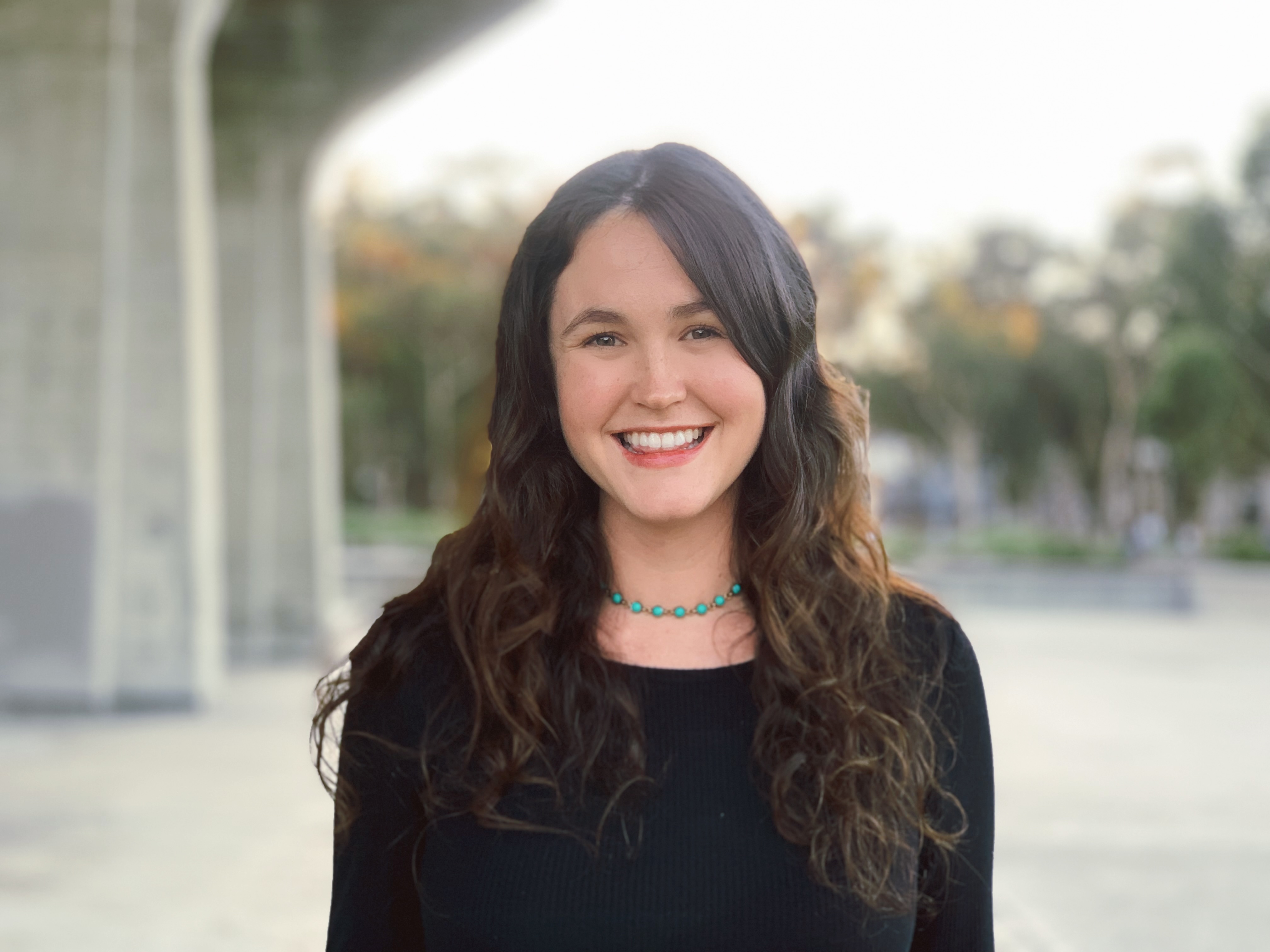
Undergraduate Major: UC San Diego Global Health Major
Global Health Interests: Alternative Mental Health Approaches, Empowering Women through Health Education, Intergenerational trauma studies
Global Health Field Experience: Mental health Initiatives, Research and Facilitation, Principal Board Member of Triton Recovery Group, Students for Global Health, and Underground Scholars
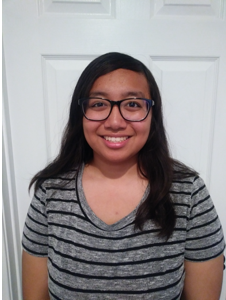
Undergraduate Major: UC San Diego Global Health Major
Global Health Interests: Geriatric population health, Non-communicable Diseases, Racial Health Disparities, Health Equity, Health Policy
Global Health Field Experiences: Hospice Volunteer in Mission Valley

Undergraduate Major: UC San Diego Global Health Major and Human Biology Major
Global Health Interests: Microbiology, LGBT Health, HIV/AIDS, Globalization, Infectious Diseases
Global Health Field Experience: Lead Student Health Advocate Coordinator specializing in Alcohol and Other Drugs, Undergraduate Research Assistant for Knight Lab (UC San Diego Pediatrics), Health Communications Intern for County of San Diego Chronic Disease and Health Equity Unit, Metro San Diego Service Center Intern for MEals on Wheels San Diego County, Well-being Cluster Student Advisory Board (WCSAB) Revelle College Representative

Undergraduate Major: UC San Diego Global Health Major
Global Health Interests: Border Health, Homelessness in Developed and Undeveloped Countries, Non-communicable Diseases
Global Health Field Experience: Coordinator for UCSD/UABC Health Frontiers in Tijuana (HFiT) Binational Clinic, HIV+ population Researcher, UCSD Global Health Brigades Spanish-English translator
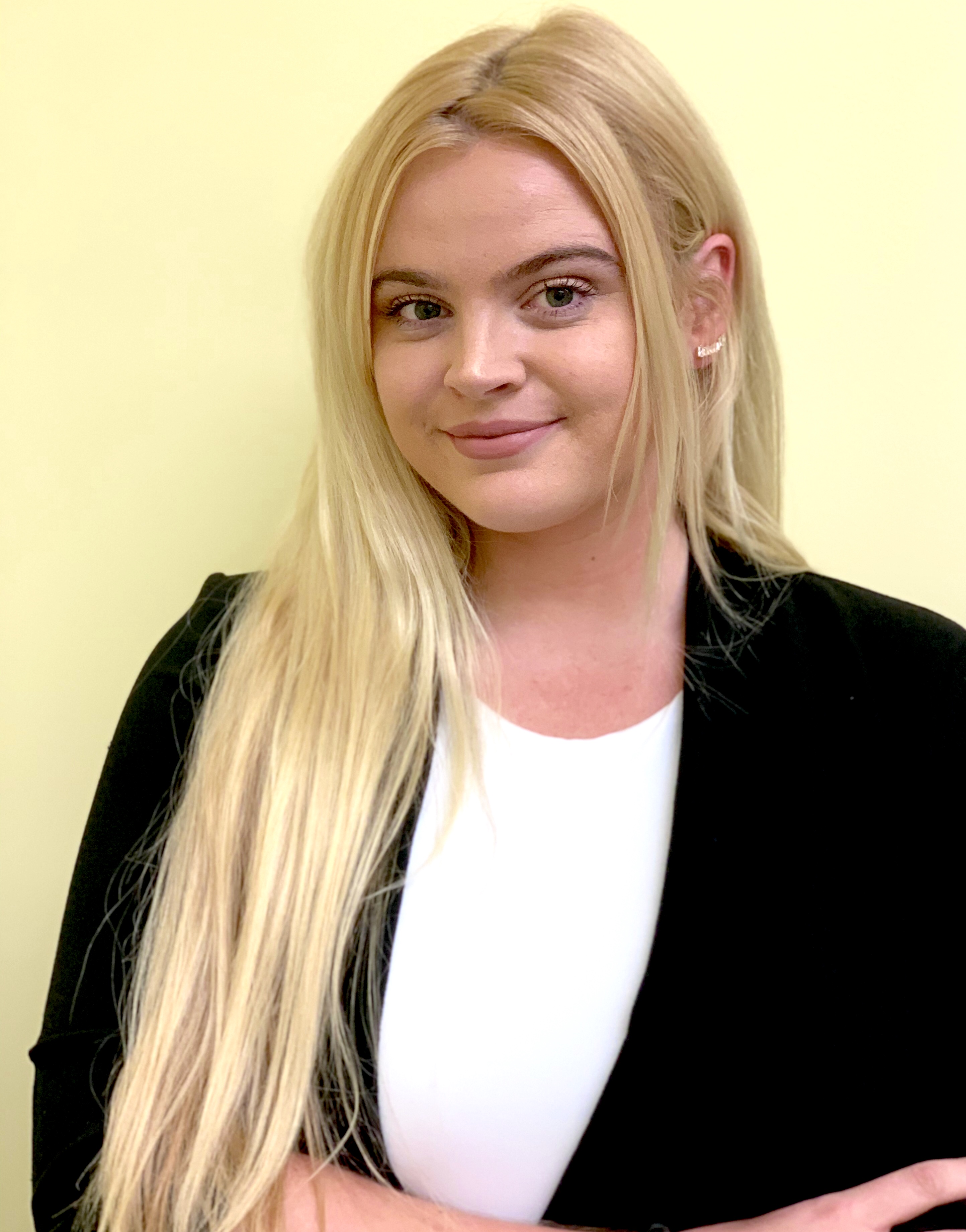
Undergraduate Major: UC San Diego Global Health Major
Global Health Interests: Refugee Health, Refugee Women's Sexual and Reproductive Health, Neurodegenerative Diseases, Traumatic Brain Injury
Global Health Field Experience: Clinical Research Assistant for Cognitive Impariment in Parkinson's Disease, Quantitative Sensory Test Administrator for Veterns with Traumatic Brain Injury, Mohs Micrographic Surgery Assistant for Basal Cell or Squamous Cell Carcinoma Patients
MA Thesis Title: “Healthcare Worker Preparedness Among Clinicians Treating the Forced Migrant Population”
Committee:
Abstract: In the midst of the forced displacement crises, the proliferation of resources and healthcare services is the cardinal focus to address the acute need of those displaced. While much data is provided regarding the volume of refugees and asylees and the necessity for medical services, far fewer information exists discussing healthcare workers and their preparedness in dealing with the acute needs of those they are treating. Of those that have, many challenges are identified in all aspects of a healthcare provider’s experience of treating displaced individuals. While healthcare workers are vital to aid in the critical needs of refugees and asylees, this can be more effectively accomplished when they are equipped to handle the unique health needs they encounter. The current study aims to explore healthcare providers' preparedness in treating refugee and asylum seeker populations within San Diego County and how the level of preparedness affects the treatment delivered.
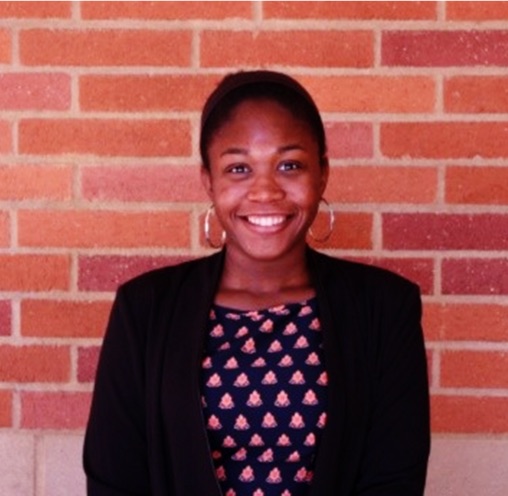
Undergraduate Major: UC San Diego Global Health Major
Global Health Interests: Women's Health, Mental Health, Socioeconomic Health Disparities, Health Education
Global Health Field Experience: Center of Global Mental Health at UC San Diego Intern
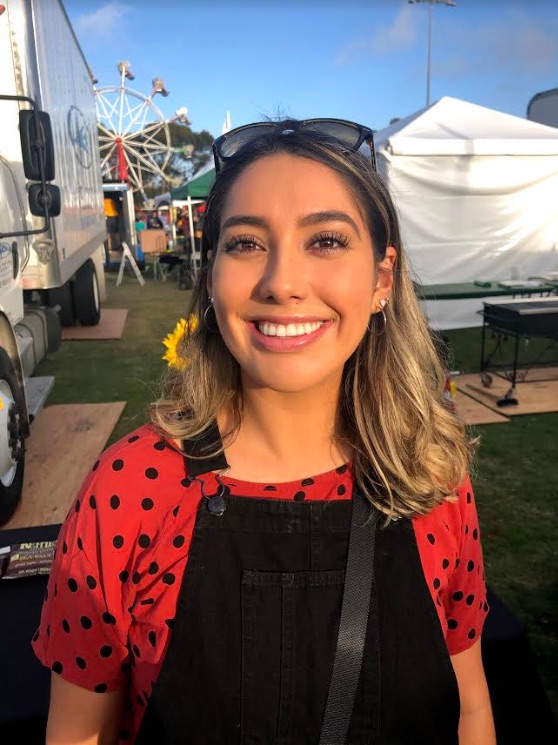
Undergraduate Major: UC San Diego Global Health Major, Sociology Minor
Global Health Interests: HIV/AIDS, Sex Work, Sexual Health and Sexual Health Education, Infectious Disease in Developing Countries
Global Health Field Experience: Ethnographic Research of HIV/AIDs and Sex Work in Bangkok, Thailand, UCSD Perception in Cognition Lab Electroencephalography and Behavioral Lab Volunteer, All of Us Research Program Volunteer
Where are our alumni now?
Americorps Grounding Values Research VISTA
Behavioral Health Assistant, Rady Children's Hospital–San Diego
Case Investigations Administration, County of San Diego Health & Human Services Agency – Epidemiology & Immunization Services Branch
Clinical Care Coordinator, cCARE
Clinical Research Assistant, U.S. Department of Veterans Affairs
Economic Analyst, San Diego Regional Policy & Innovation Center
Evaluation Coordinator, SDSU Research Foundation
Homeless Patient Outreach Specialist, Family Health Centers of San Diego
Project Manager, Aya Healthcare
Project Manager, UC San Diego, Refugee Health Unit
Program Coordinator, CHW Workforce Collaborative, Association of Asian Pacific Community Health Organizations (AAPCHO)
Program Coordinator, EyePacs
Public Health Analyst, CDC Foundation
Quantitative Researcher and Data Analyst, UC San Diego Herbert Wertheim School of Public Health and Human Longevity Science
Research Associate, S-3 Research
Sexual and Reproductive Health Promotion Specialist, SDSU Well-being & Health Promotion
Sharp Mesa Vista Psychiatric Hospital
UCSD Hillcrest ARVC (Antiviral Research Center)
Post MA Graduate Programs: